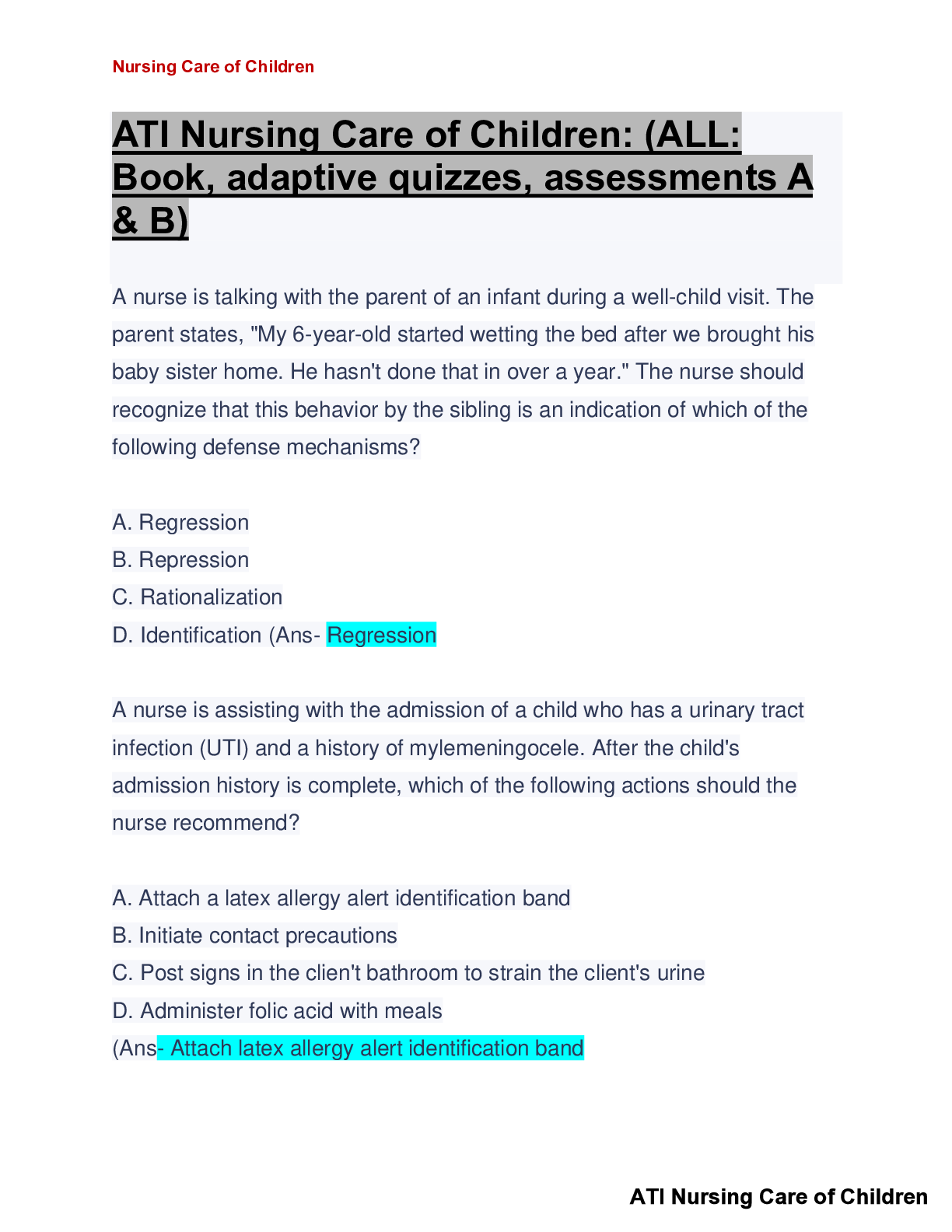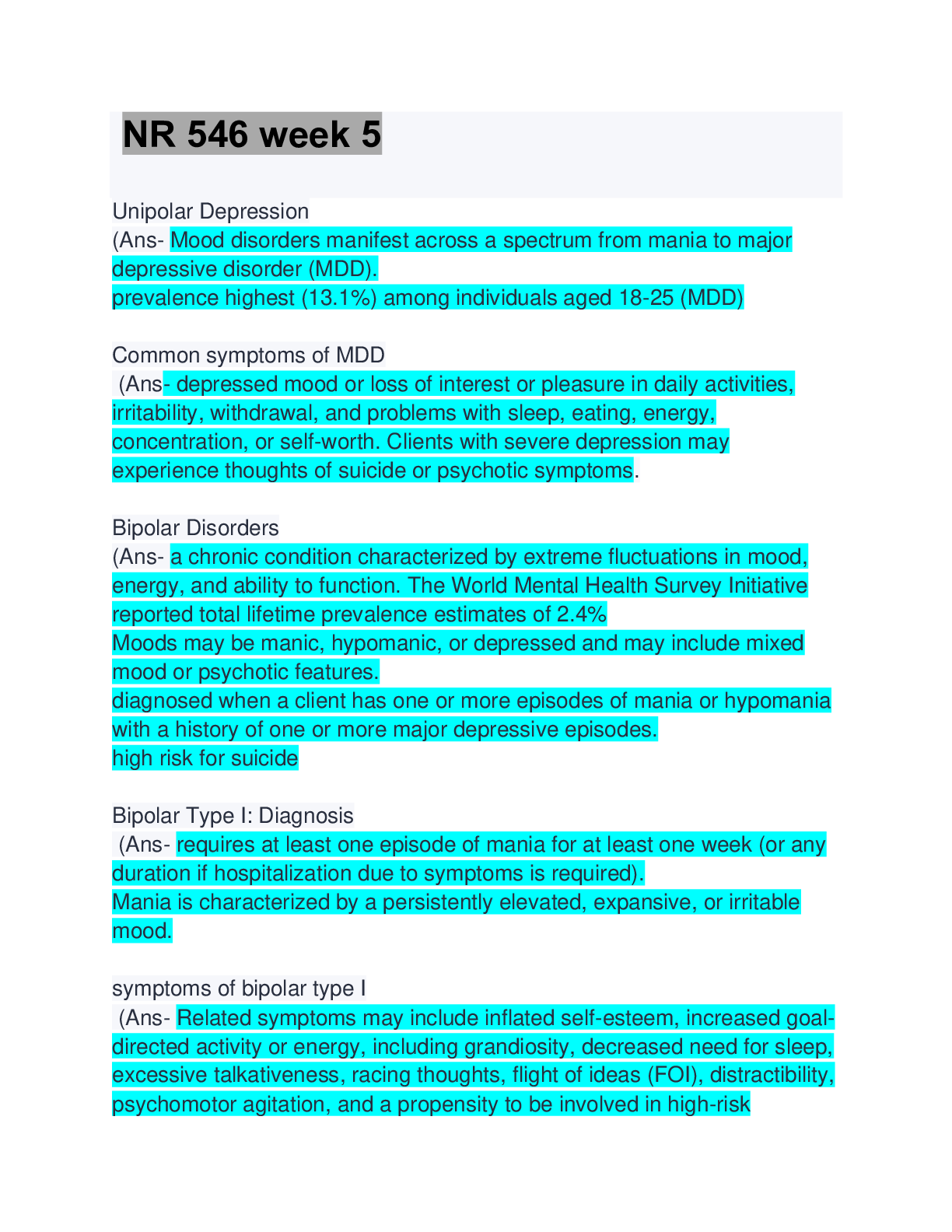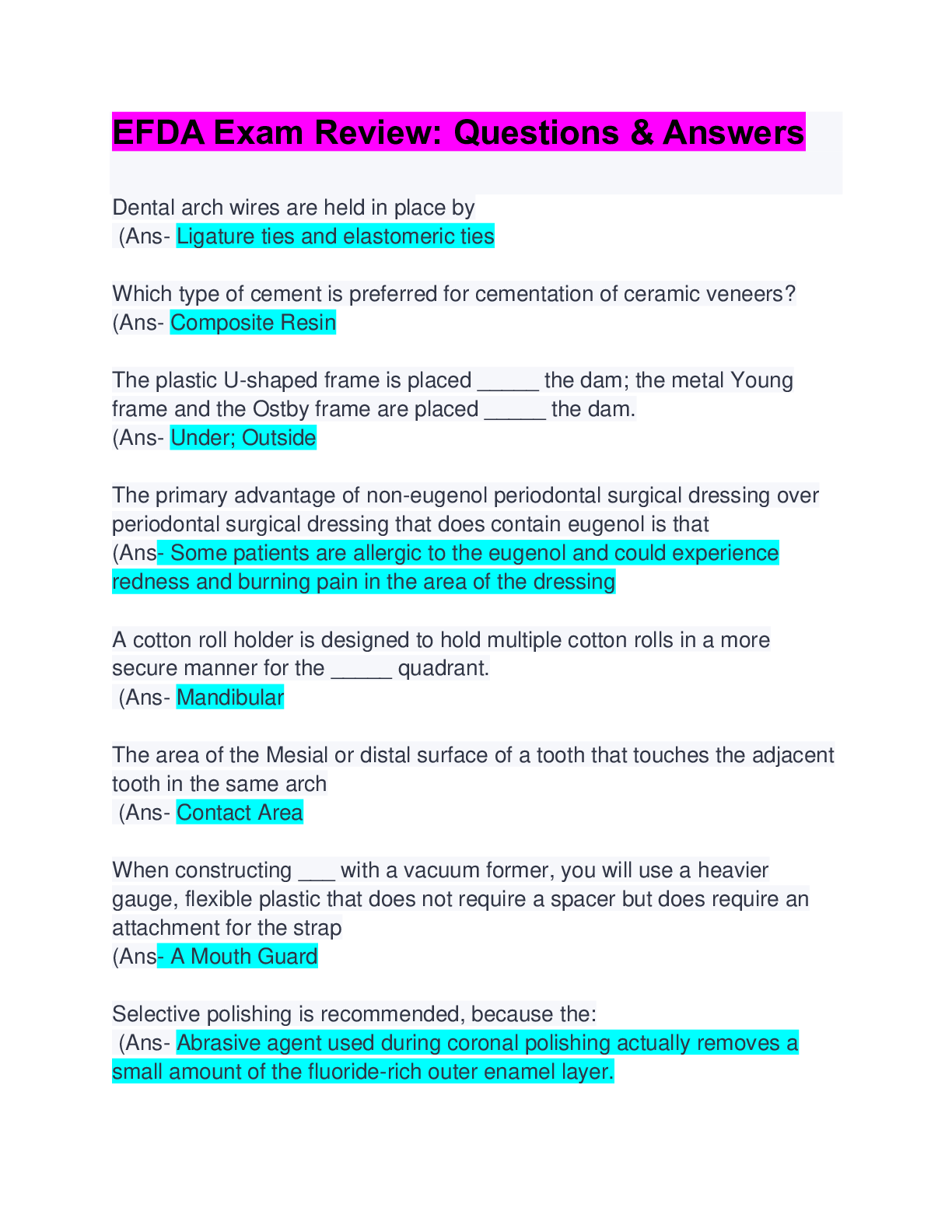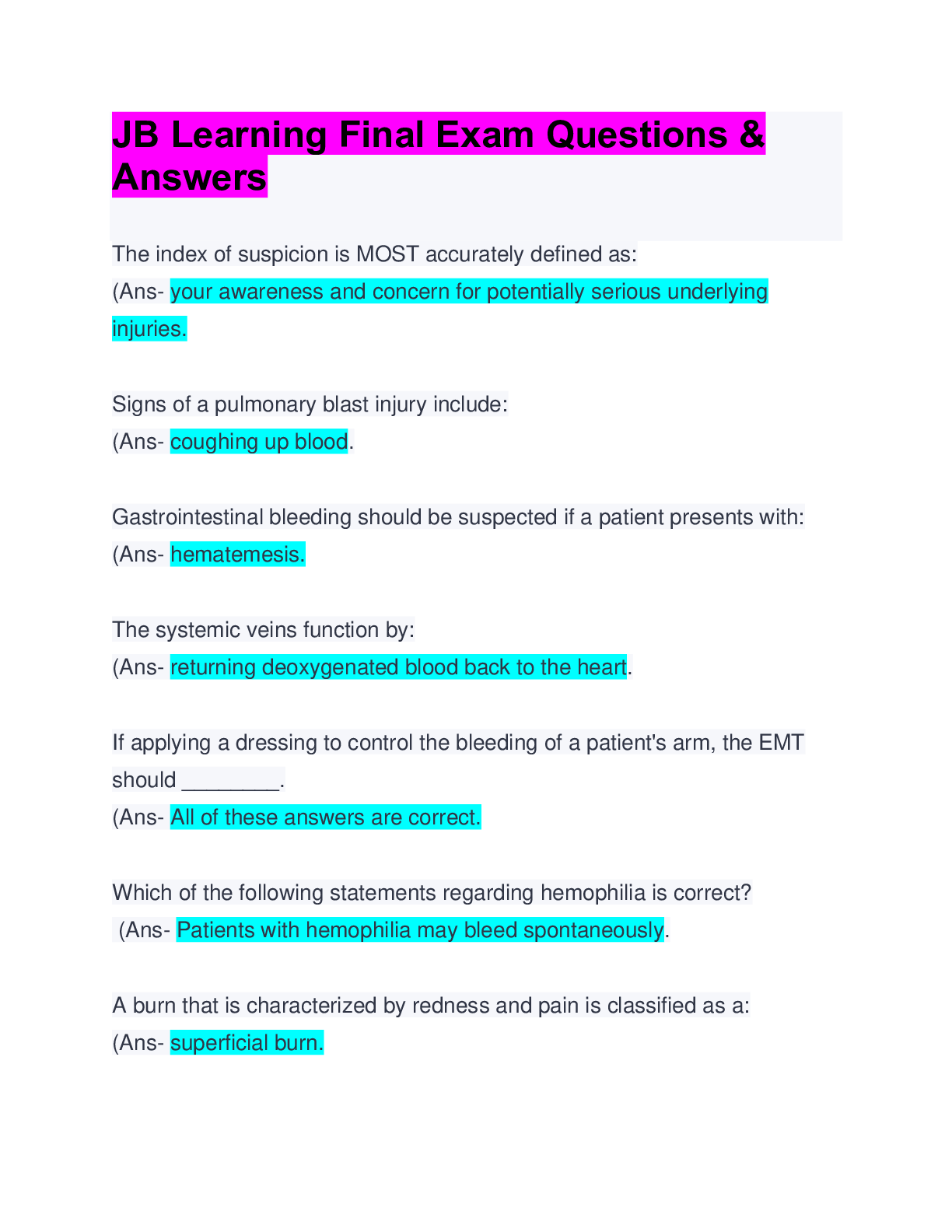Health Care > EXAM > RN ATI Fundamentals (10.0); Questions & Answers; Latest Updated A+ Score Solution (All)
RN ATI Fundamentals (10.0); Questions & Answers; Latest Updated A+ Score Solution
Document Content and Description Below
1. A nurse is discussing restorative health care with a newly licensed nurse. Which of the following examples should the nurse include in the teaching? (Select all that apply.) a. Home health care ... b. Rehabilitation facilities c. Diagnostic centers d. Skilled nursing facilities e. Oncology centers 2. A nurse is explaining the various types of health care coverage clients might have to a group of nurses. Which of the following health care financing mechanisms should the nurse include as federally funded? (Select all that apply.) a. Preferred provider organization (PPO) b. Medicare c. Long-term care insurance d. Exclusive provider organization (EPO) e. Medicaid 3. A nurse manager is developing strategies to care for the increasing number of clients who have obesity. Which of the following actions should the nurse include as a primary health care strategy? a. Collaborating with providers to perform obesity screenings during routine office visits. b. Ensuring the availability of specialized beds in rehabilitation centers for clients who have obesity. c. Providing specialized intraoperative training in surgical treatments for obesity. d. Educating acute care nurses about postoperative complications related to obesity. 4. A nurse is discussing the purpose of regulatory agencies during a staff meeting. Which of the following tasks should the nurse identify as the responsibility of state licensing boards? a. Monitoring evidence-based practice for clients who have a specific diagnosis. b. Ensuring that health care providers comply with regulations. c. Setting quality standards for accreditation of health care facilities. d. Determining whether medications are safe for administration to clients. 5. A nurse is explaining the various levels of health care services to a group of newly licensed nurses. Which of the following examples of care or care settings should the nurse classify as tertiary care? (Select all that apply.) a. Intensive care unit b. Oncology treatment center c. Burn center d. Cardiac rehabilitation e. Home health care Chapter 2 1. A nurse is caring for a group of clients on a medical surgical unit. For which of the following client care needs should the nurse initiate a referral for a social worker? (Select all that apply.) a. A client who has terminal cancer requests hospice care in the home. b. A client asks about community resources available for older adults. c. A client states, “I would like to have my child baptized before surgery.” d. A client requests an electric wheelchair for use after discharge. e. A client states, “I do not understand how to use a nebulizer.” 2. A goal for a client who has difficulty with self-feeding due to rheumatoid arthritis is to use adaptive devices. The nurse caring for the client should initiate a referral to which of the following members of the interprofessional care team? a. Social worker b. Certified nursing assistant c. Registered dietitian d. Occupational therapist 3. A client who is postoperative following knee arthroplasty is concerned about the adverse effects of the medication prescribed for pain managements. Which of the following members of the interprofessional care team can assist the client in understanding the medication’s effects? (Select all that apply.) a. Provider b. Certified nursing assistant c. Pharmacist d. Registered nurse e. Respiratory therapist 4. A client who had a cerebrovascular accident has persistent problems with dysphagia. The nurse caring for the client should initiate a referral with which of the following members of the interprofessional care team? a. Social worker b. Certified nursing assistant c. Occupational therapist d. Speech-language pathologist 5. A nurse is acquainting a group of newly licensed nurses with the roles of the various members of the health care team they will encounter on a medical-surgical unit. When providing examples of the types of tasks CNAs can perform, which of the following client activities should the nurse include? (Select all that apply.) a. Bathing b. Ambulating c. Toileting d. Determining pain level e. Measuring vital signs Chapter 3 1. A nurse is caring for a client who decides not to have surgery despite significant blockages of the coronary arteries. The nurse understands that this client’s choice is an example of which of the following ethical principles? a. Fidelity b. Autonomy c. Justice d. Nonmaleficence 2. A nurse offers pain medication to a client who is postoperative prior to ambulation. The nurse understands that this aspect of care delivery is an example of which of the following ethical principles? a. Fidelity b. Autonomy c. Justice d. Beneficence 3. A nurse is instructing a group of newly license nurses about the responsibilities organ donation and procurement involve. When the nurse explains that all clients waiting for a kidney transplant have to meet the same qualifications, the newly licensed nurses should understand that this aspect of care delivery is an example of which of the following ethical principles? a. Fidelity b. Autonomy c. Justice d. Nonmaleficence 4. A nurse questions a medication prescription as too extreme in light of the client’s advanced age and unstable status. The nurse understands that this action is an example of which of the following ethical principles? a. Fidelity b. Autonomy c. Justice d. Nonmaleficence 5. A nurse is instructing a group of newly licensed nurses how to know and what to expect when ethical dilemmas arise. Which of the following situations should the newly licensed nurses identify as an ethical dilemma? a. A nurse on a medical-surgical unit demonstrates signs of chemical impairment. b. A nurse overhears another nurse telling an older adult client that if he doesn’t stay in bed, she will have to apply restraints. c. A family has conflicting feelings about the initiation of enteral tube feedings for their father, who is terminally ill. d. A client who is terminally ill hesitates to name their partner on their durable power of attorney form. Chapter 4 1. A nurse observes an assistive personnel (AP) reprimanding a client for not using the urinal properly. The AP tells the client that diapers will be used next time the urinal is used improperly. Which of the following torts is the AP committing? a. Assault b. Battery c. False imprisonment d. Invasion of privacy [Show More]
Last updated: 1 year ago
Preview 1 out of 82 pages
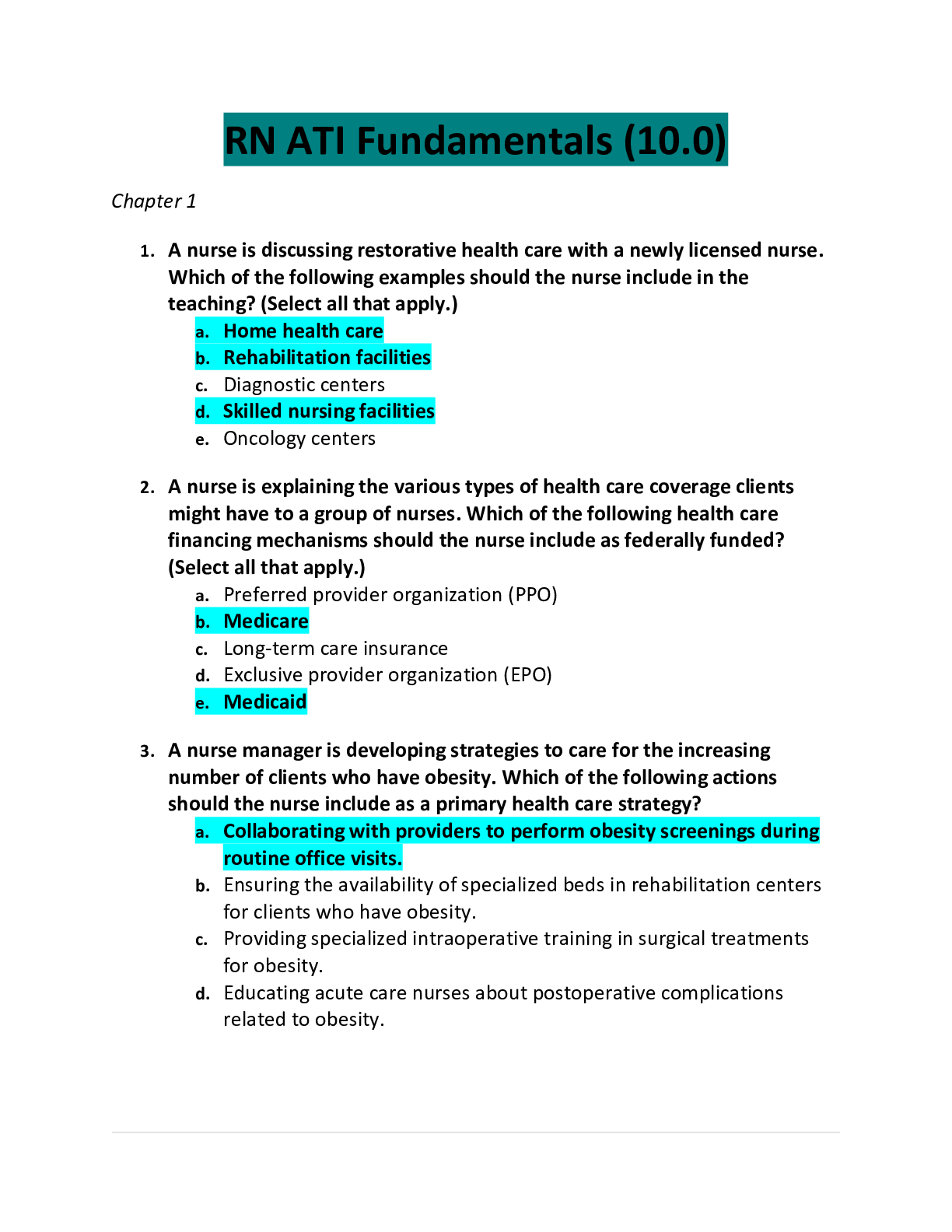
Reviews( 0 )
Document information
Connected school, study & course
About the document
Uploaded On
Oct 27, 2022
Number of pages
82
Written in
Additional information
This document has been written for:
Uploaded
Oct 27, 2022
Downloads
0
Views
104
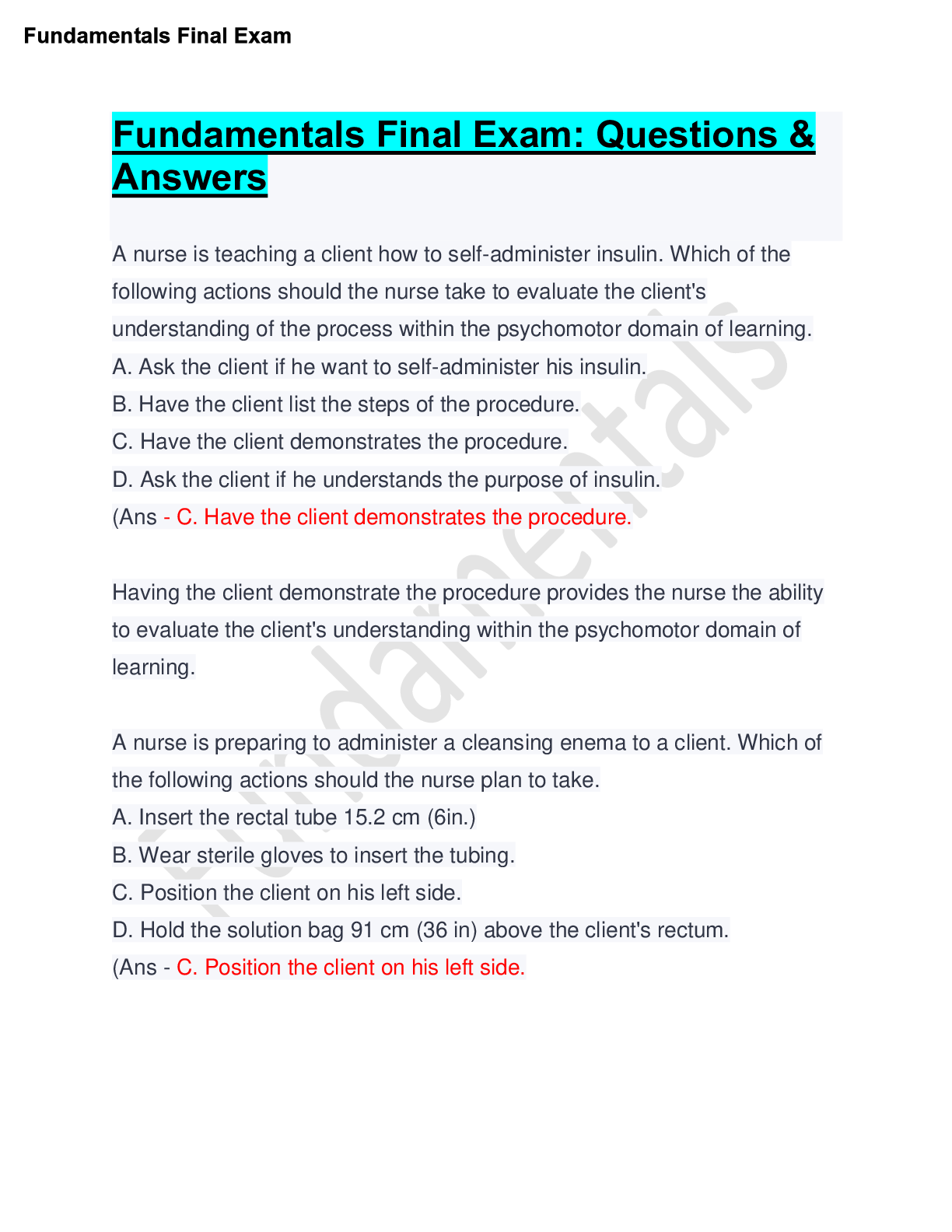


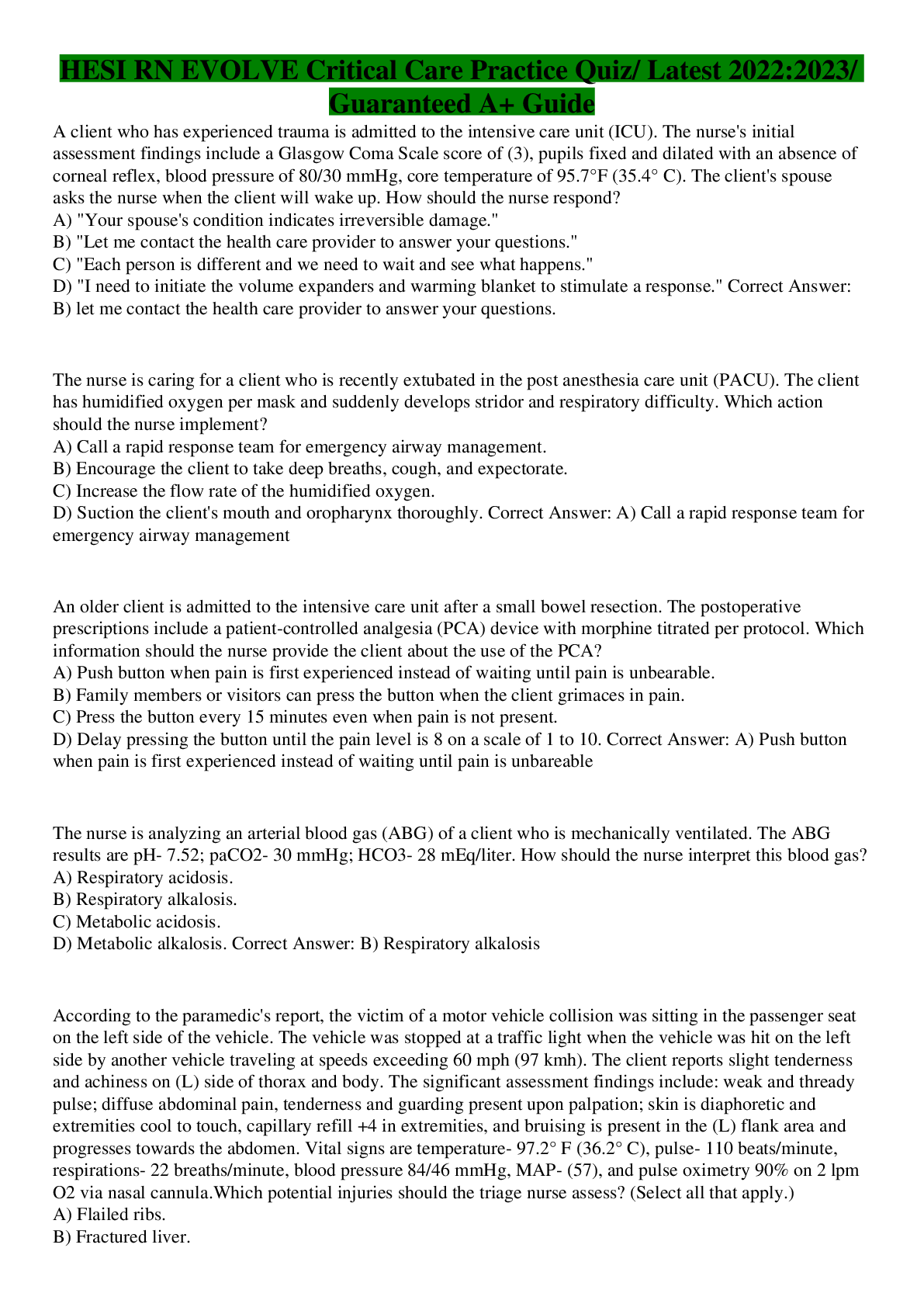
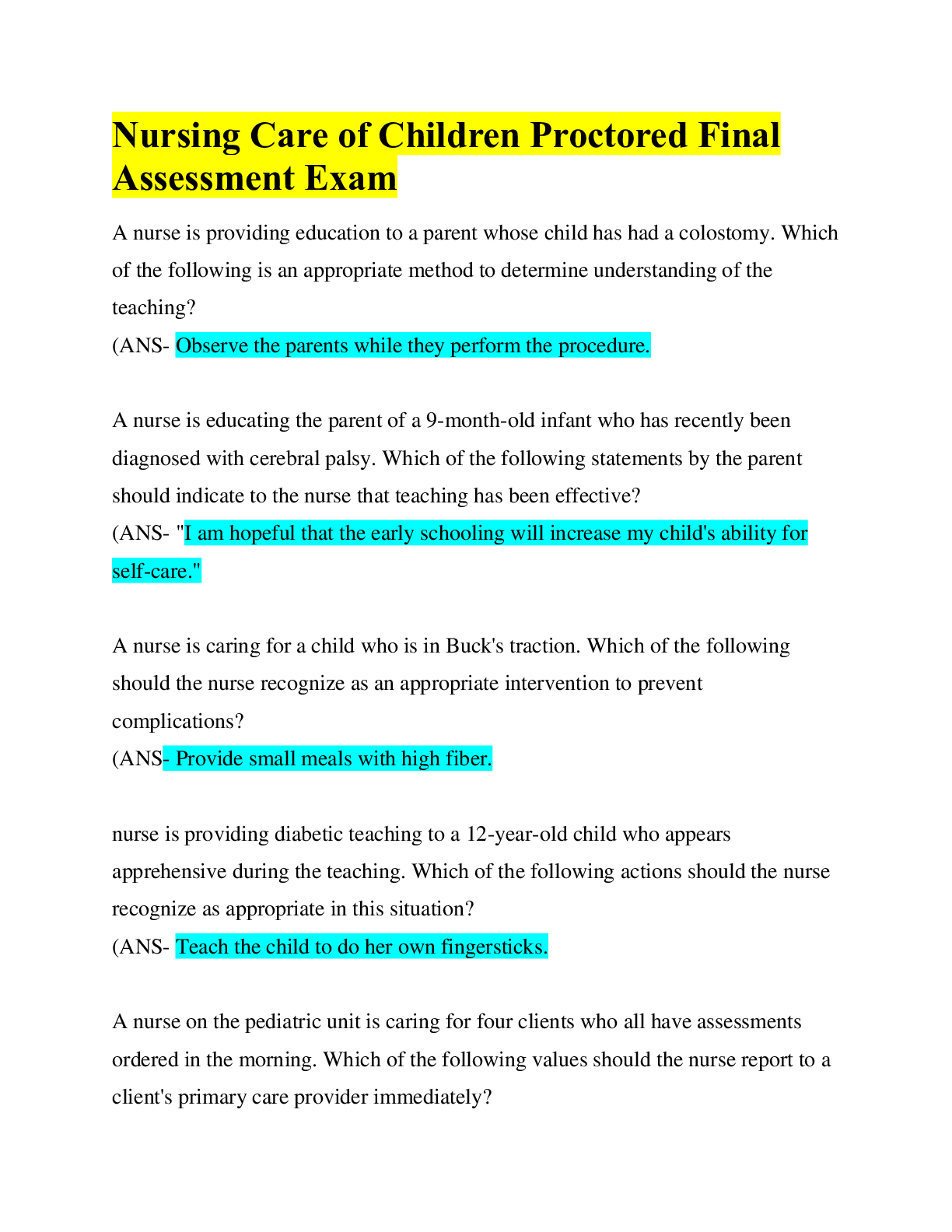
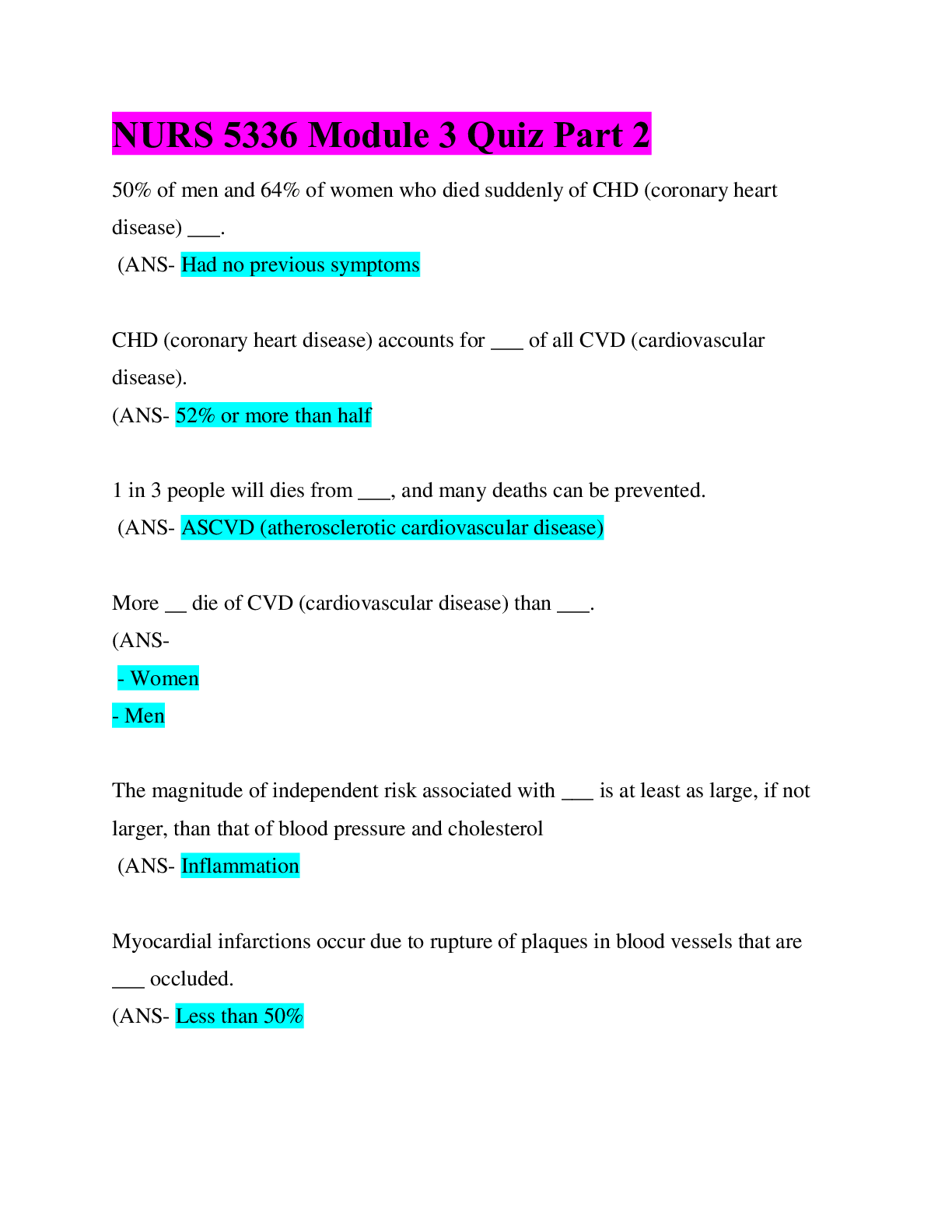
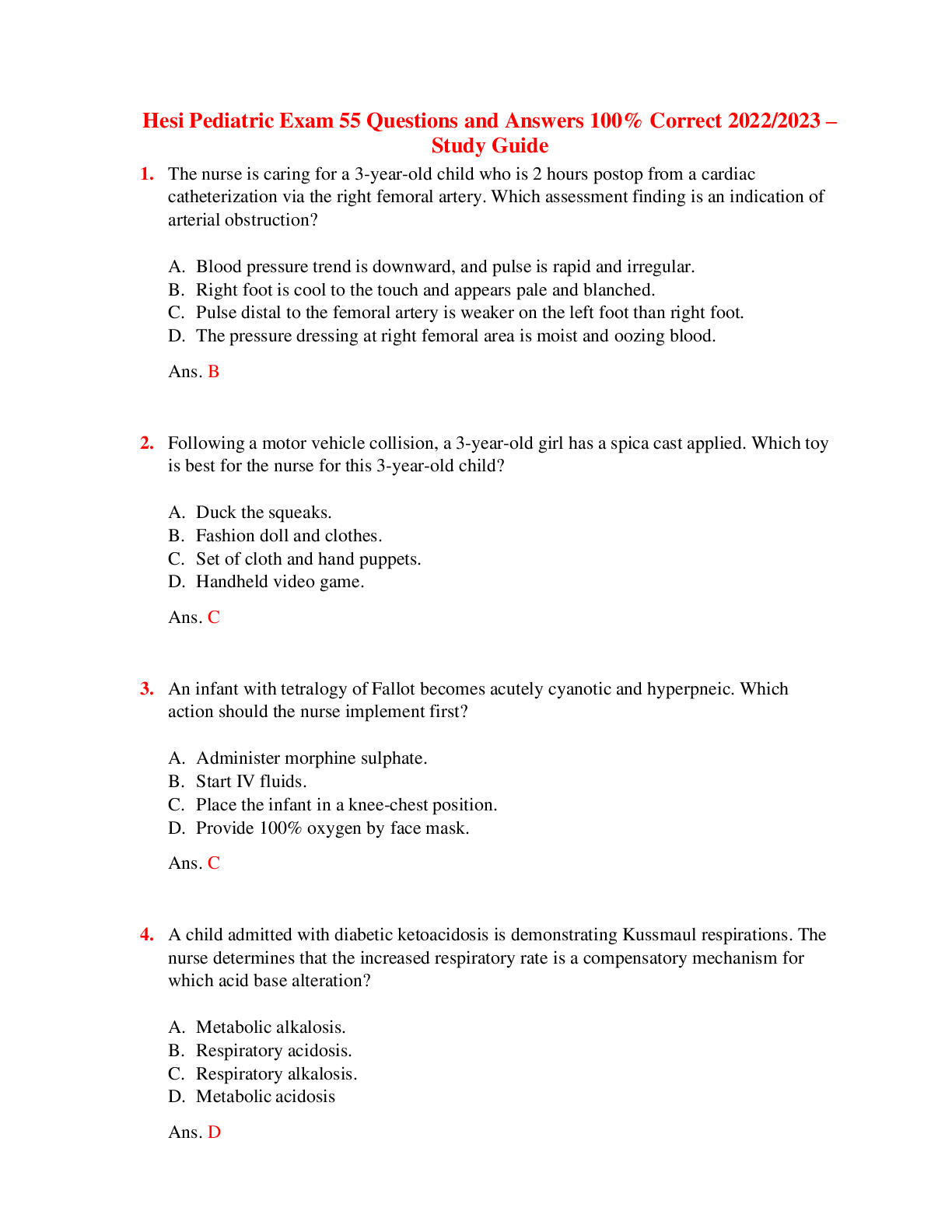
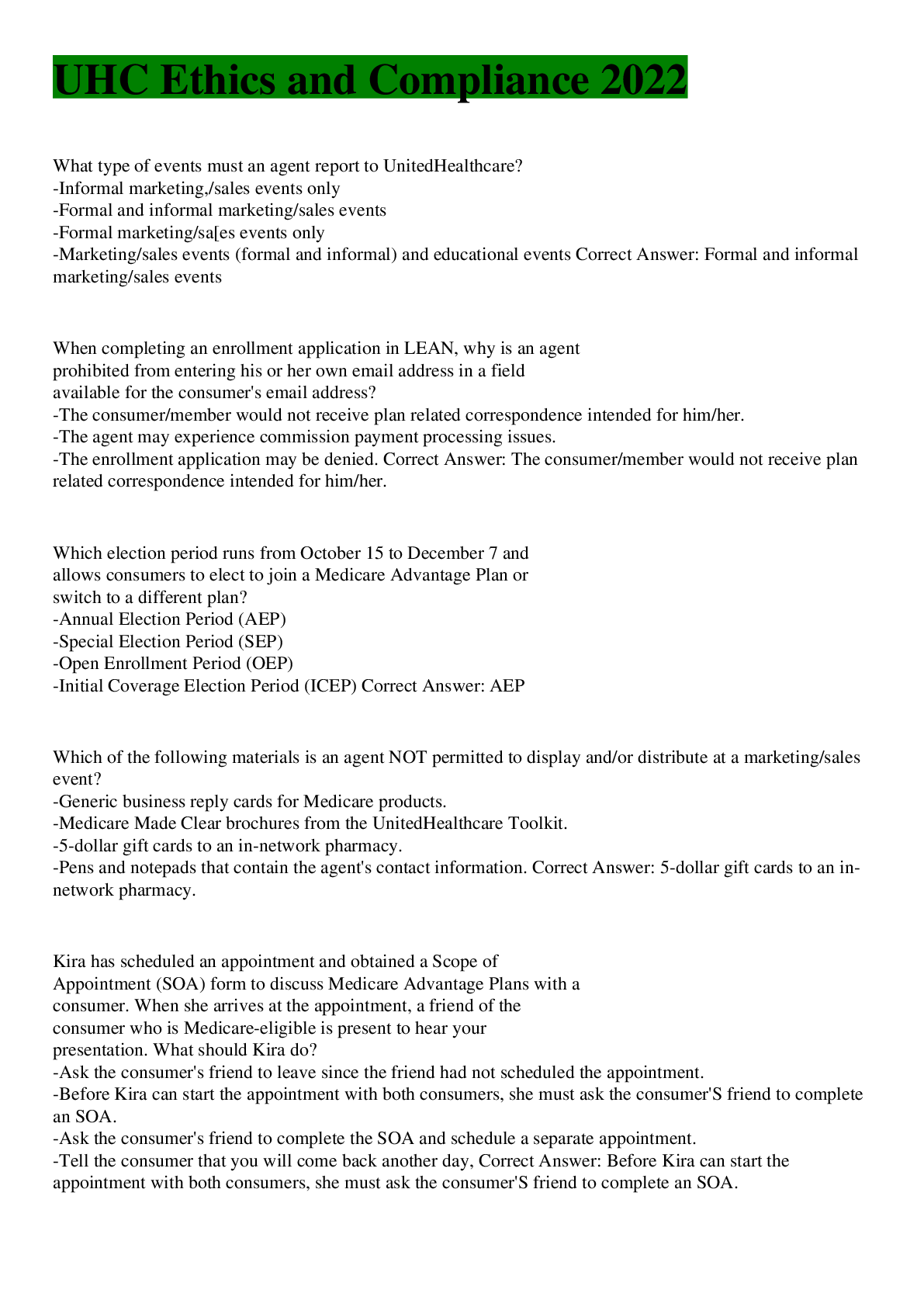
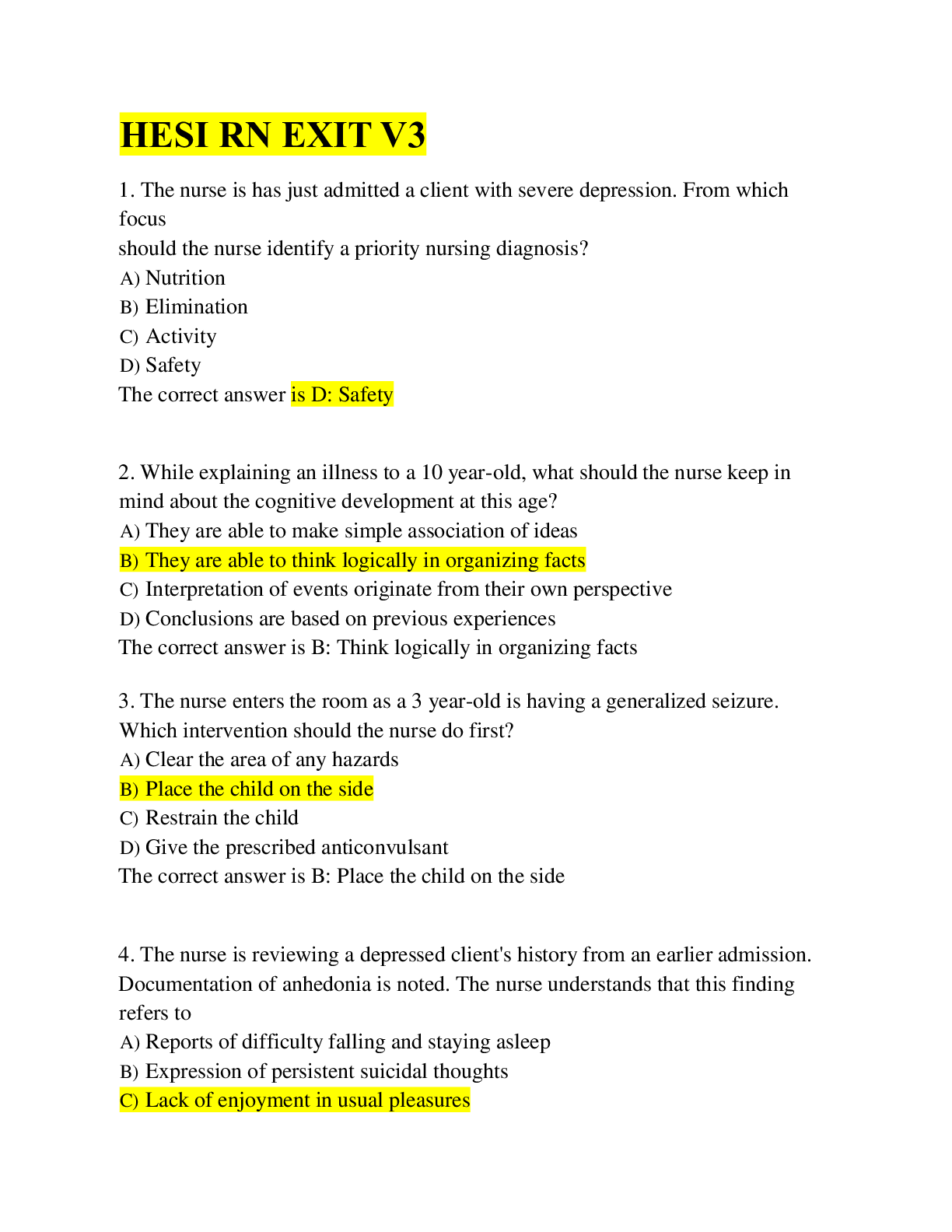
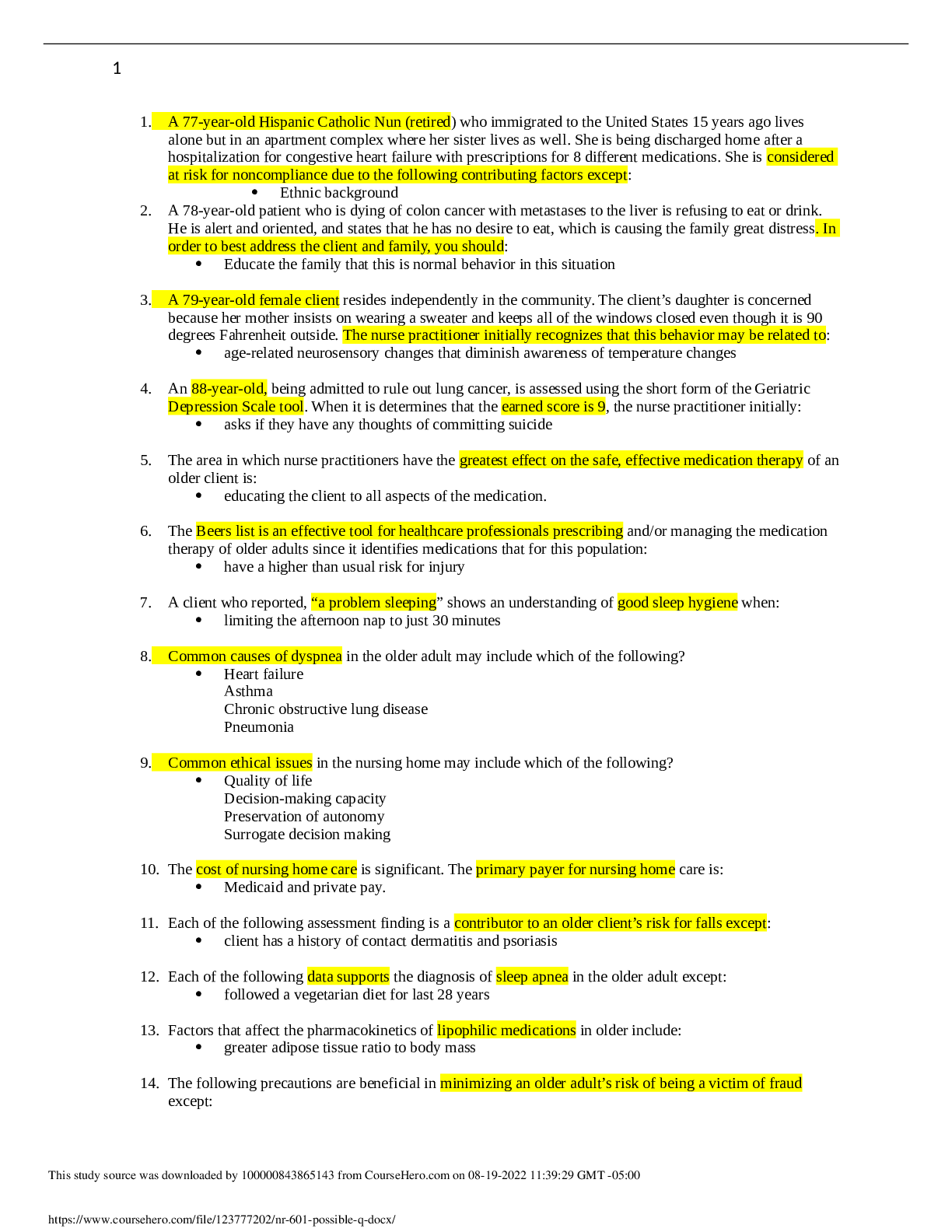
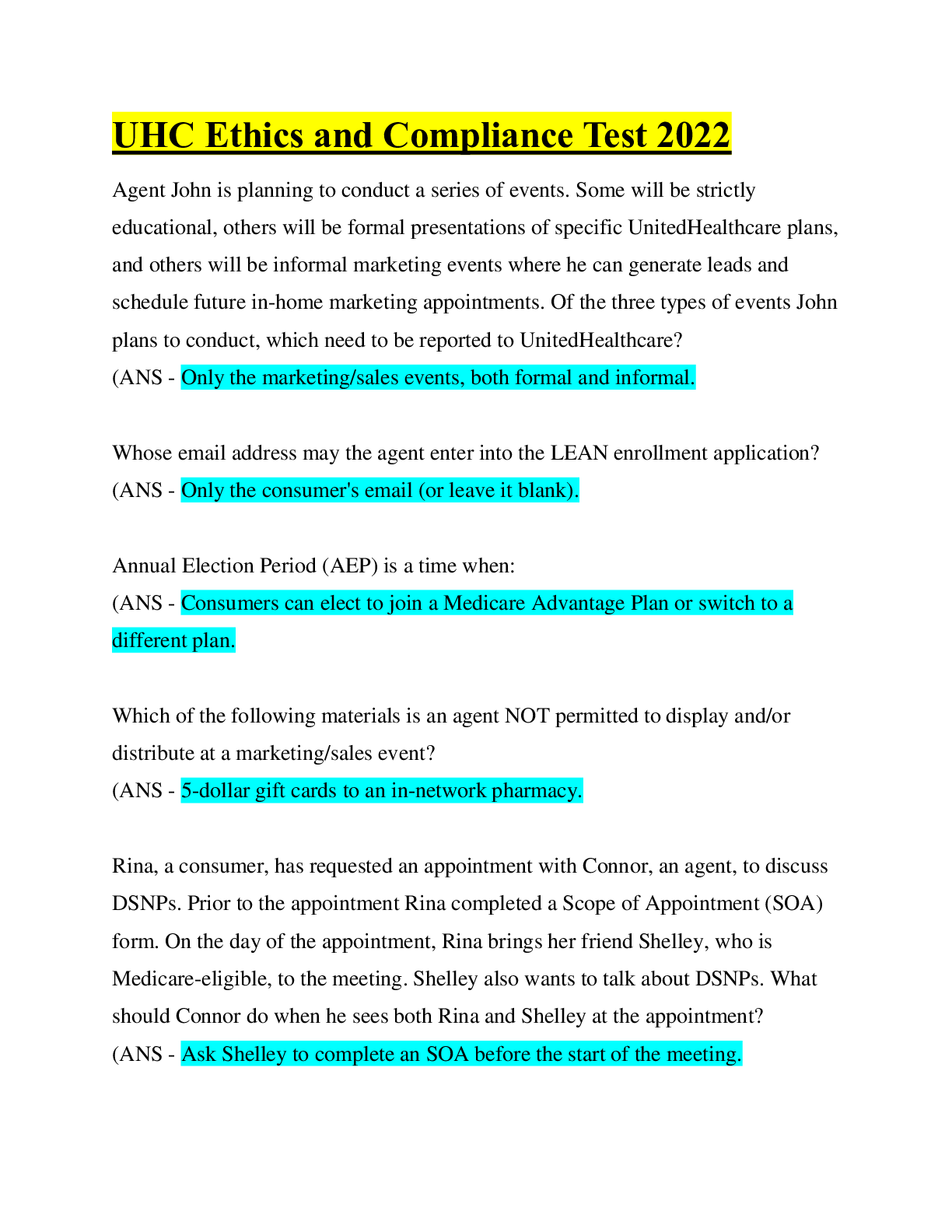
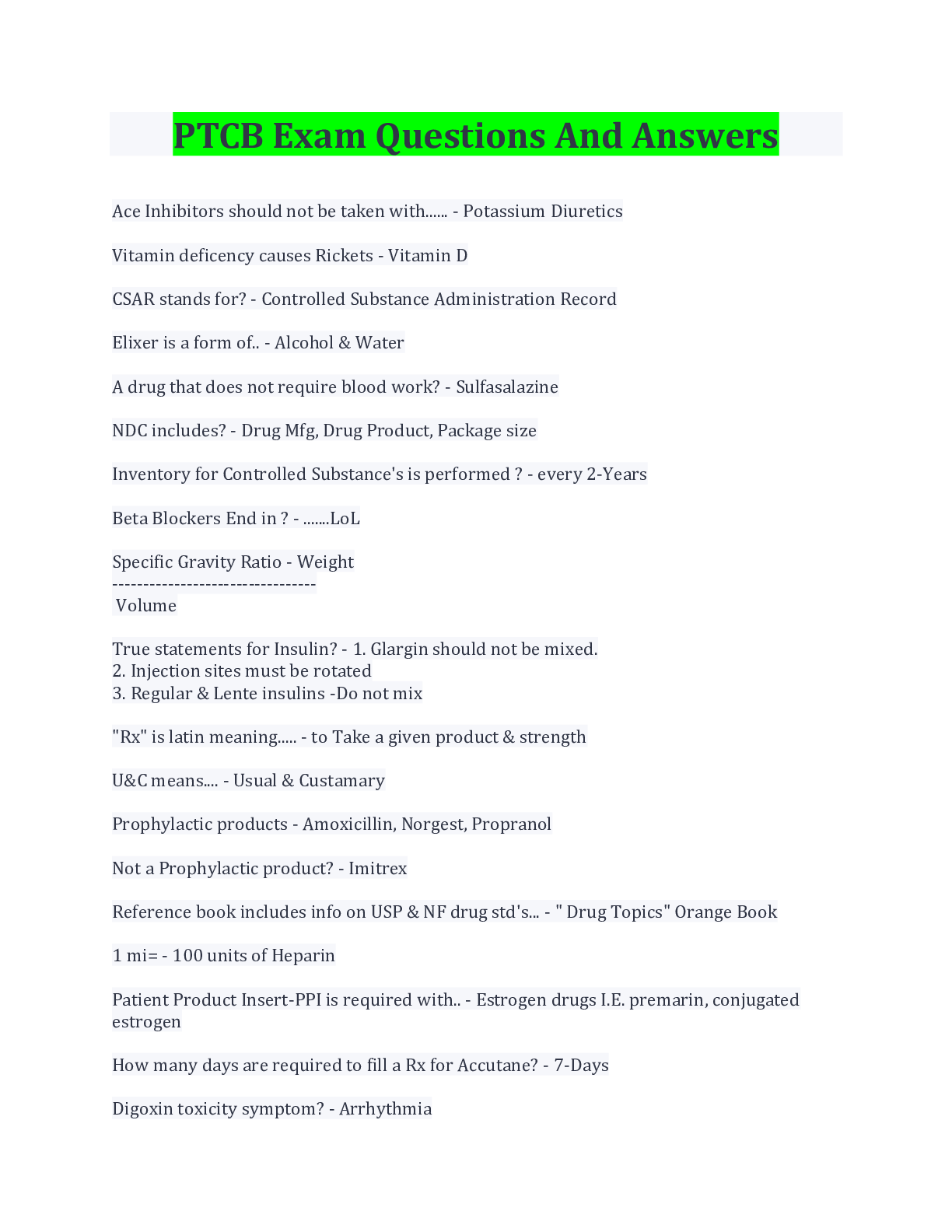
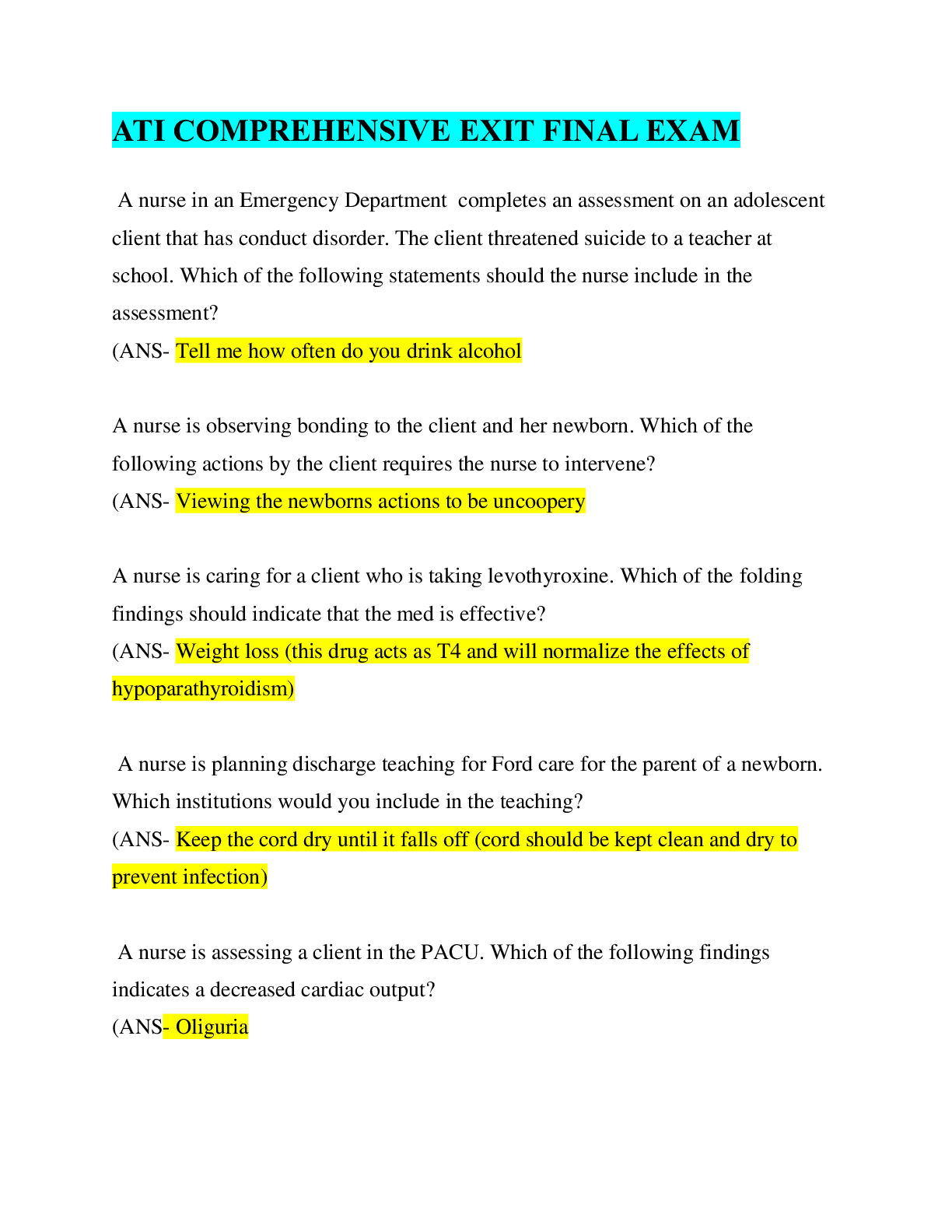
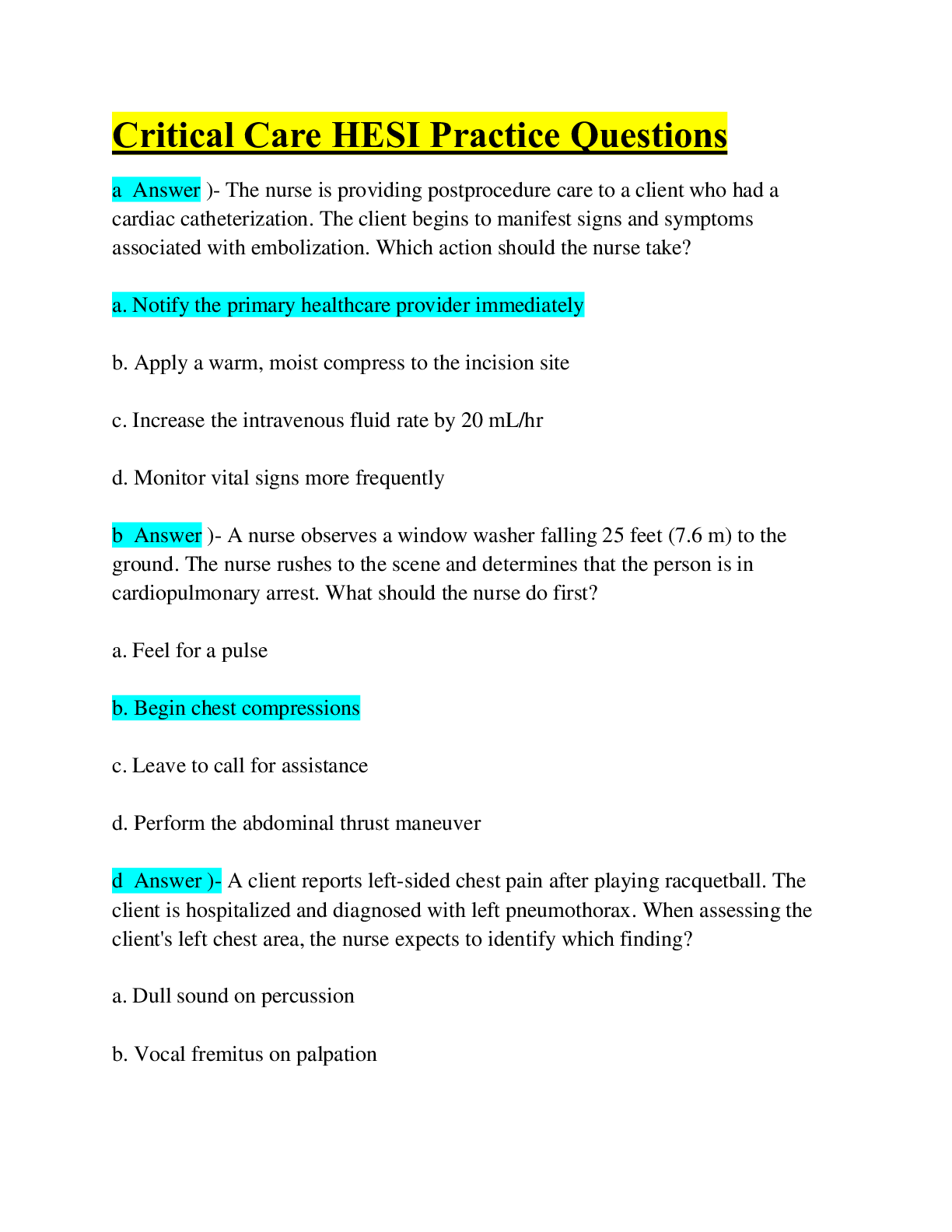


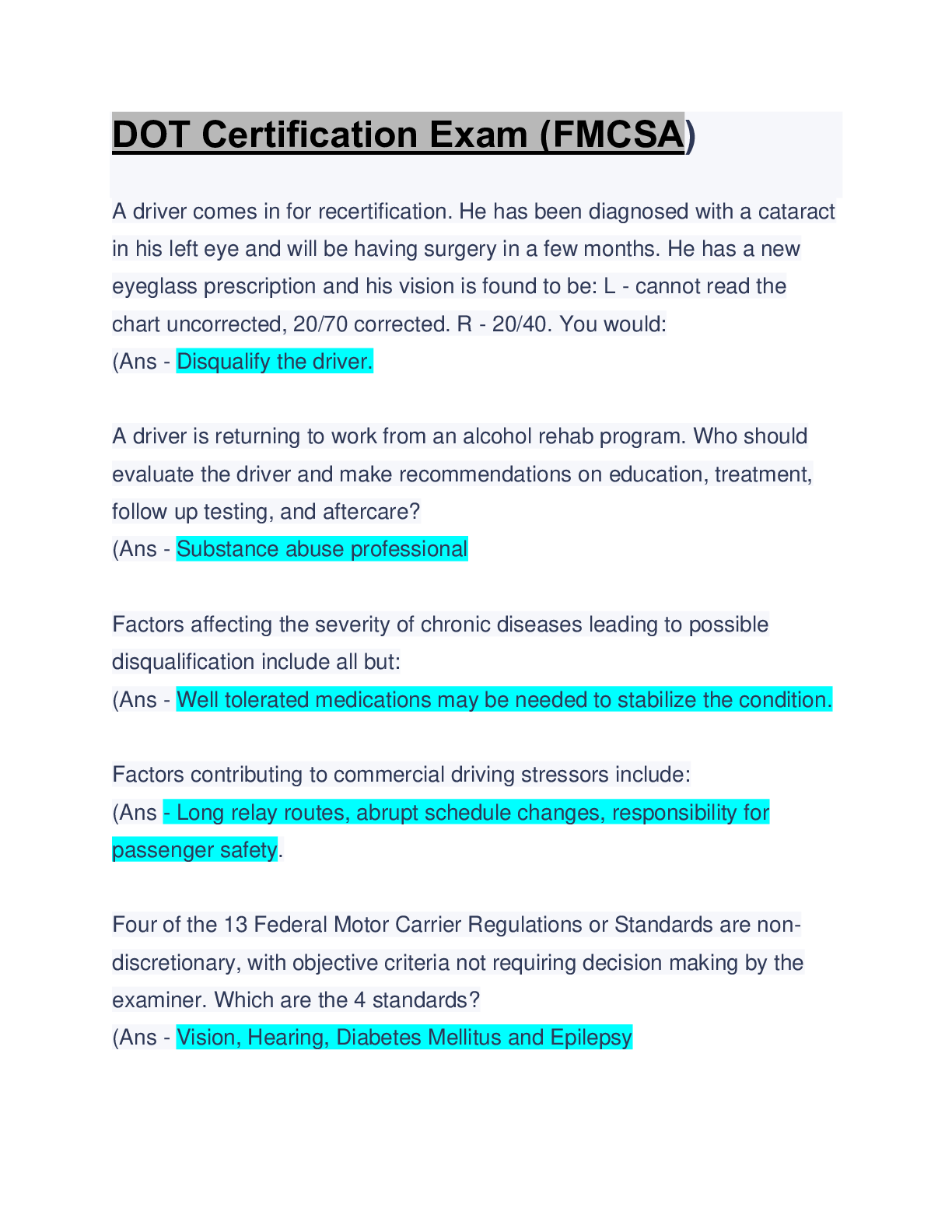
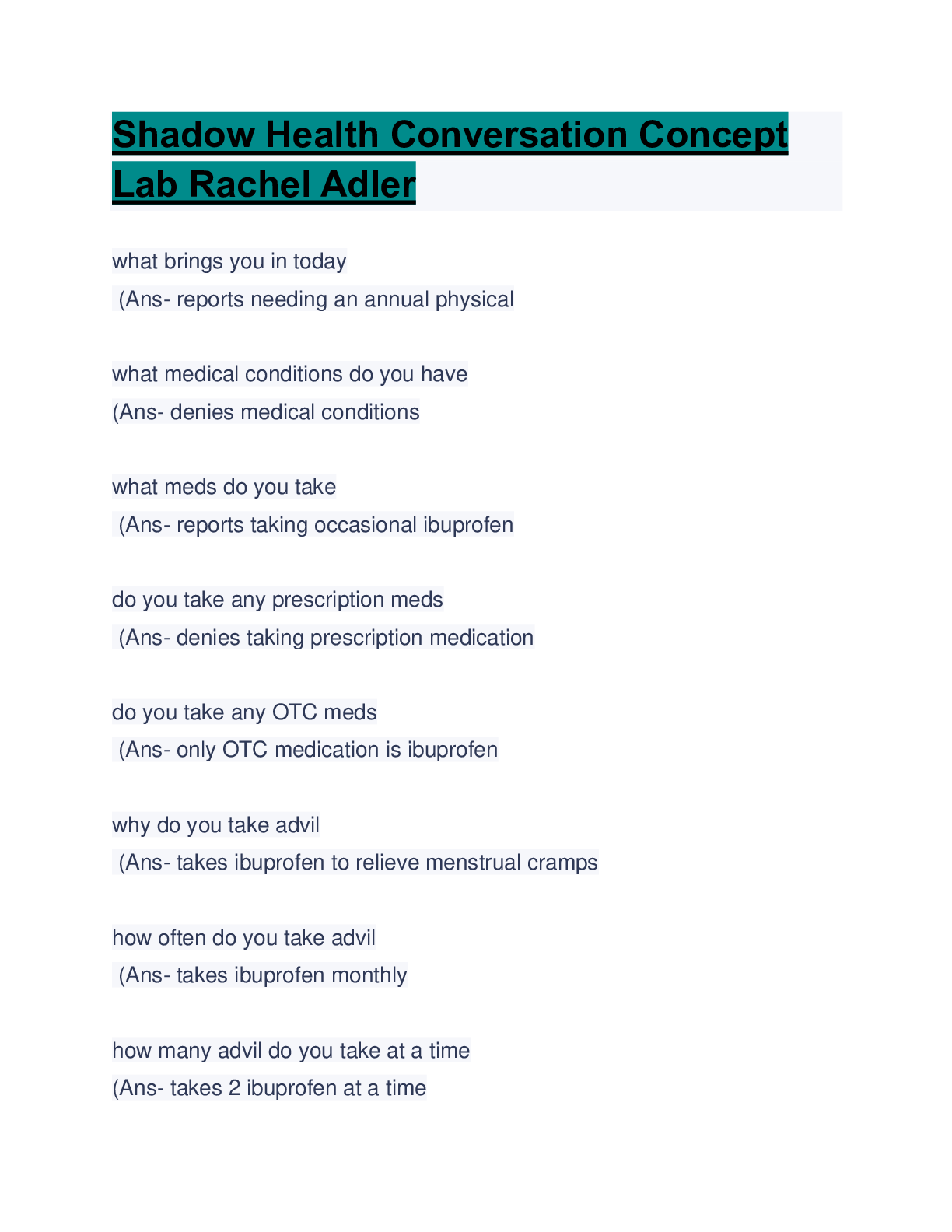
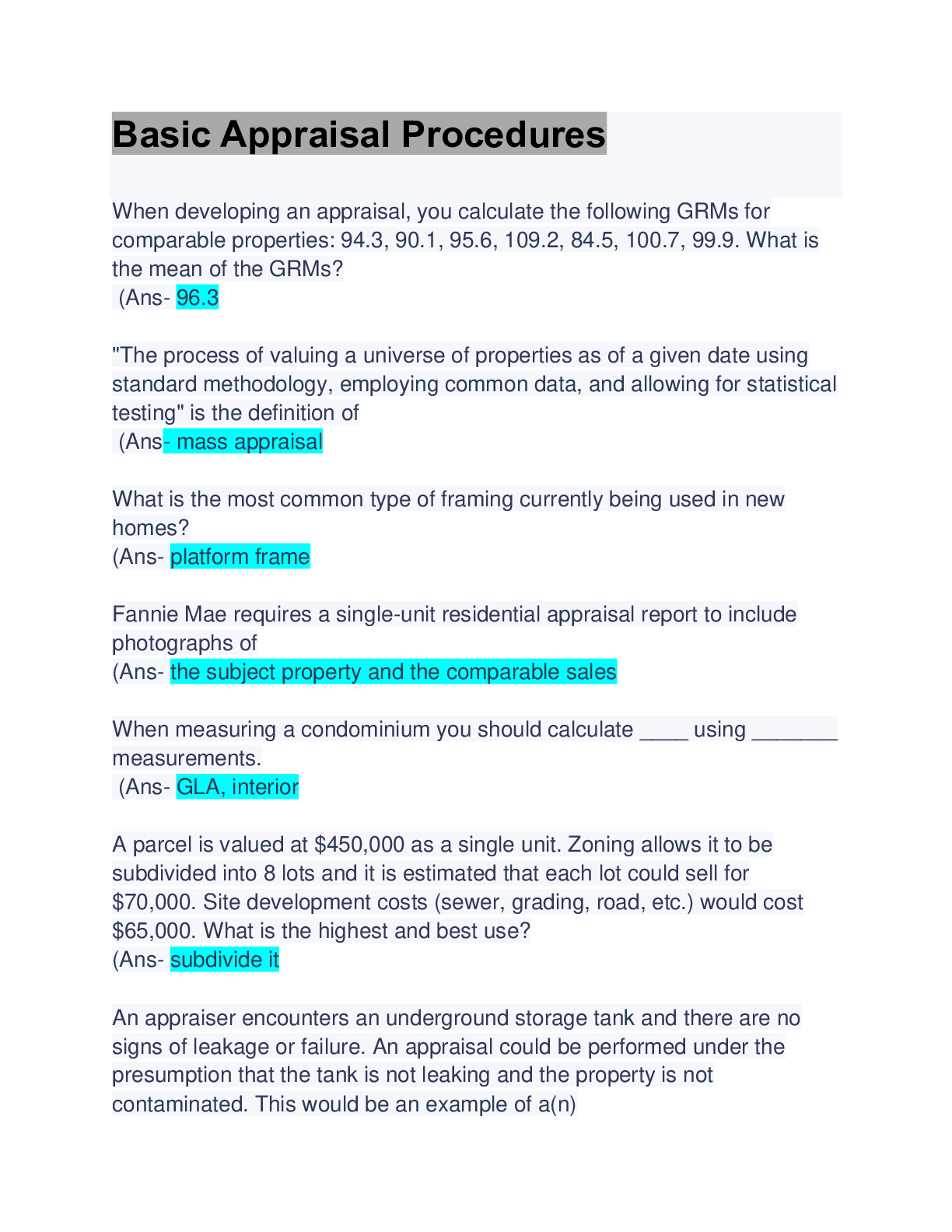
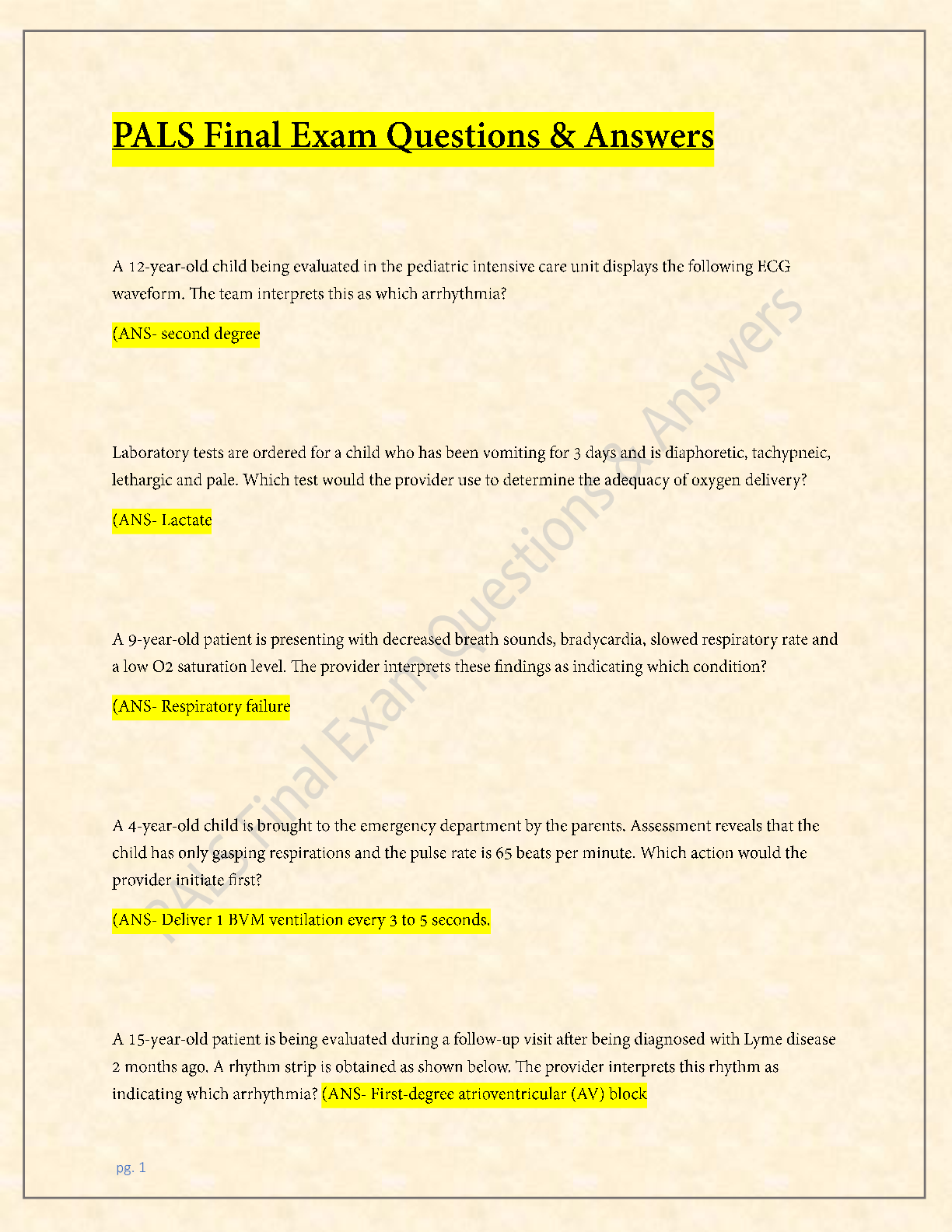
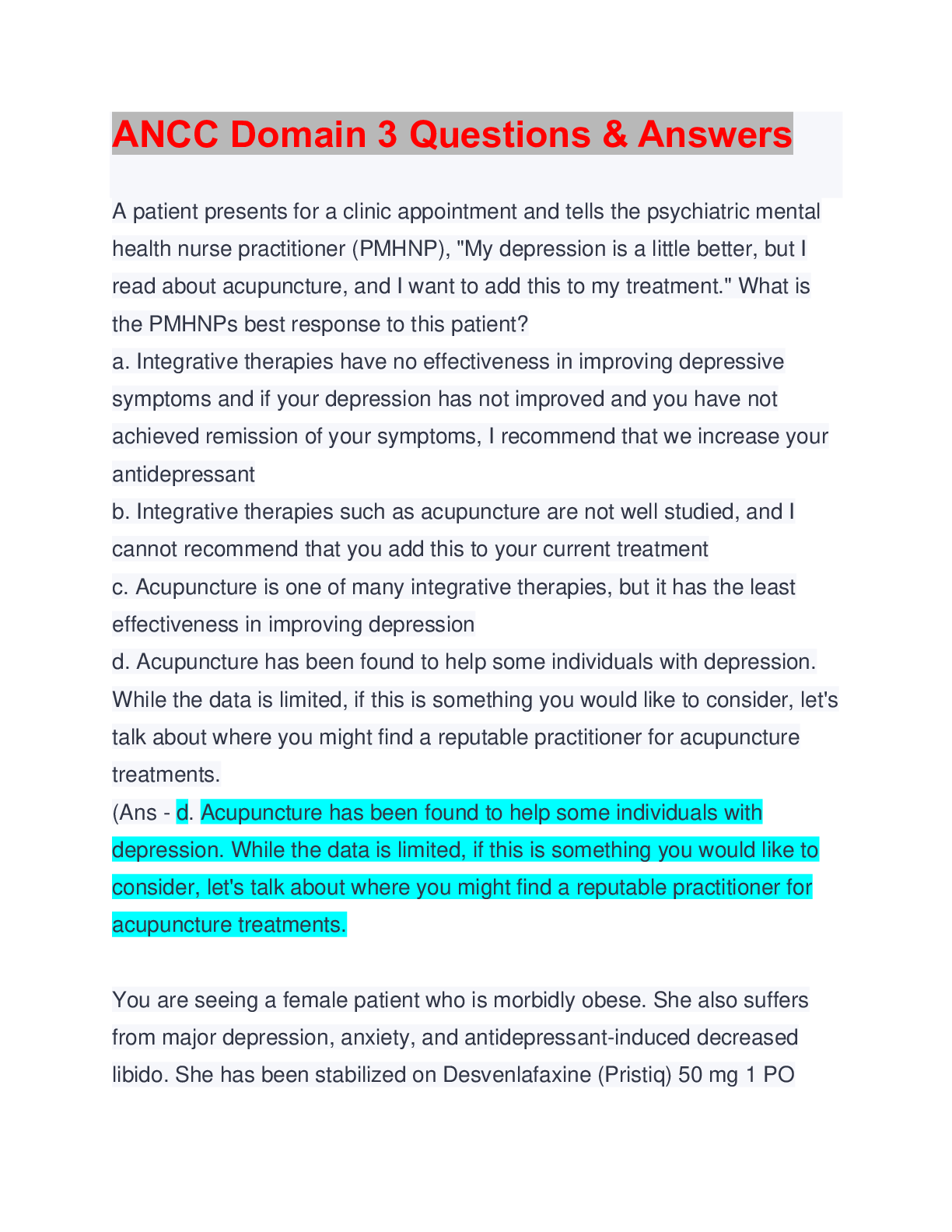
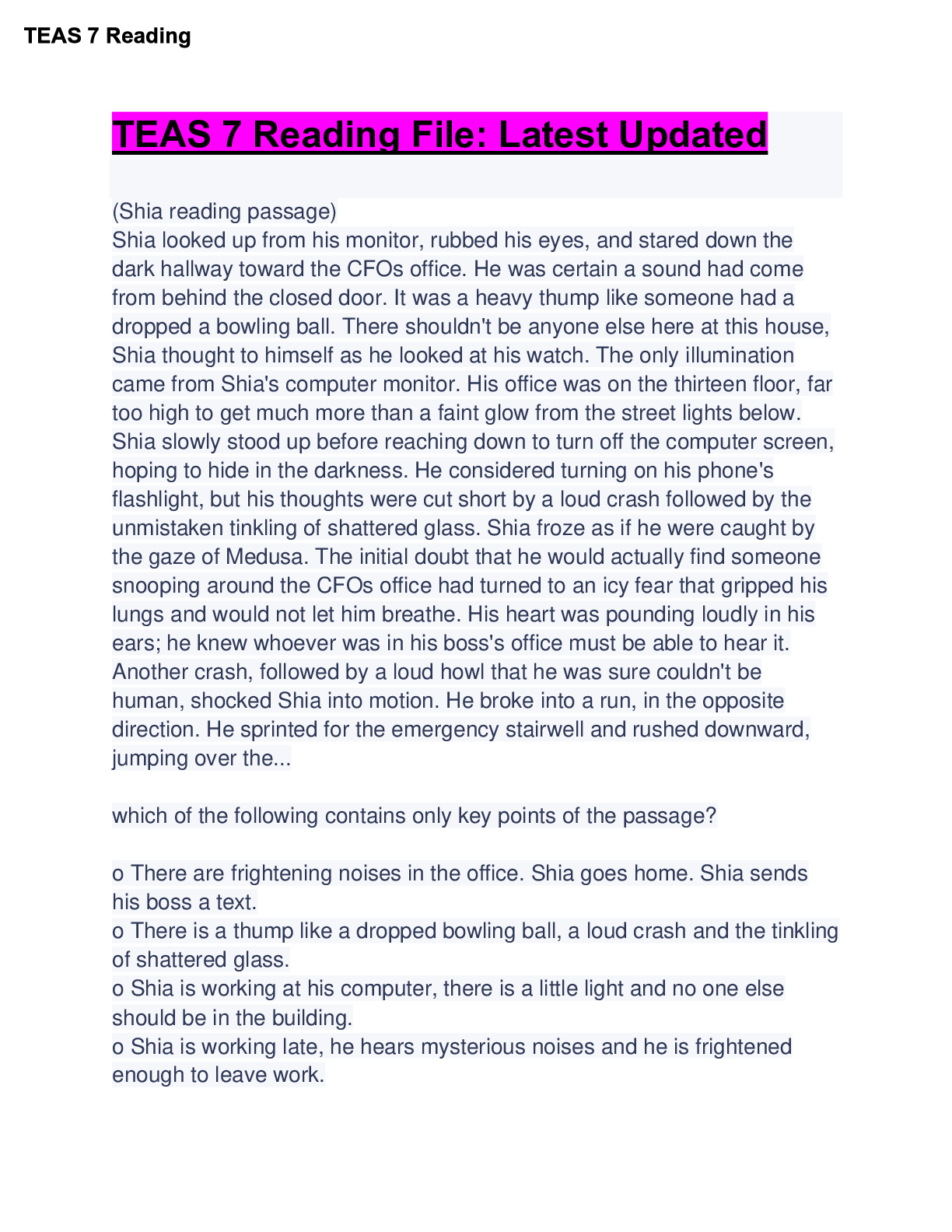
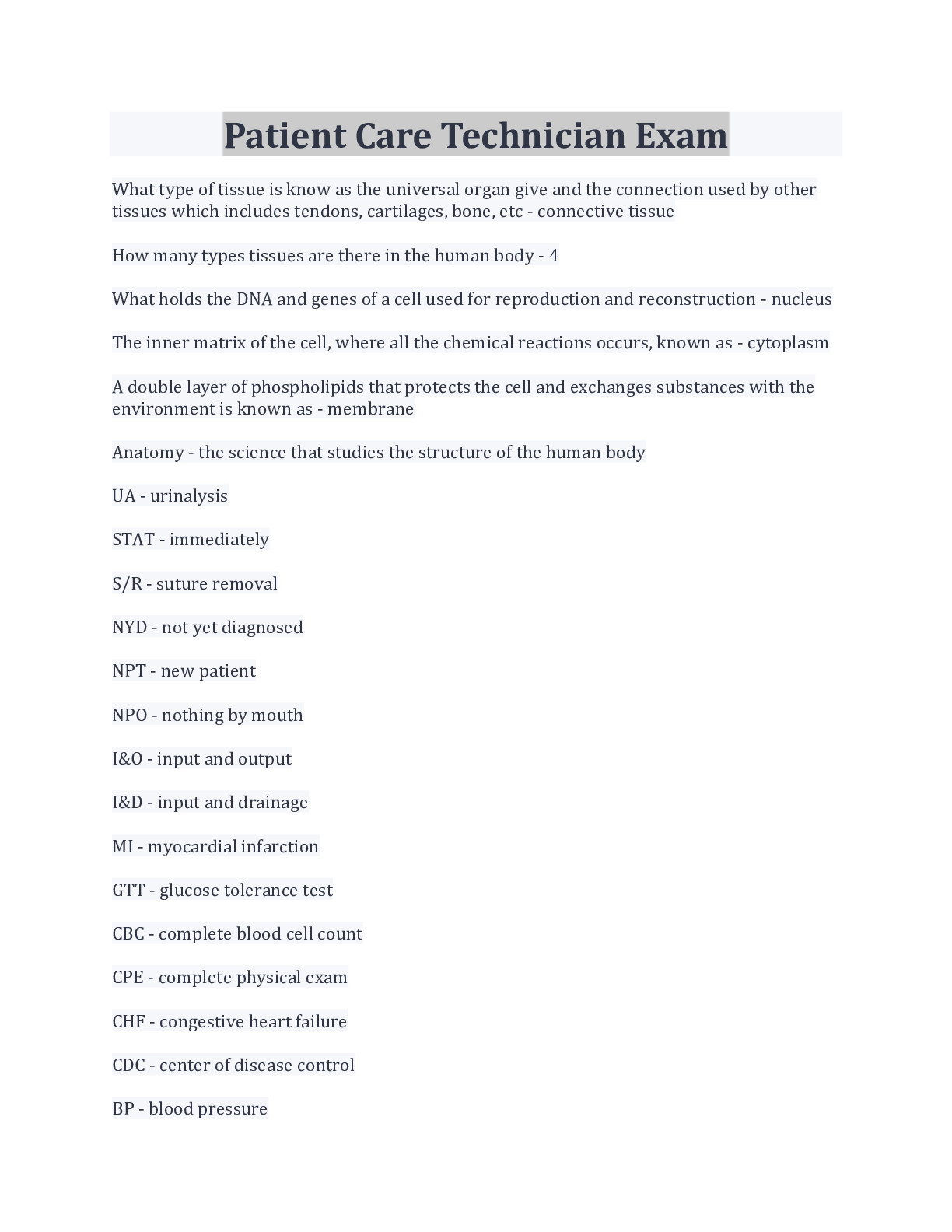
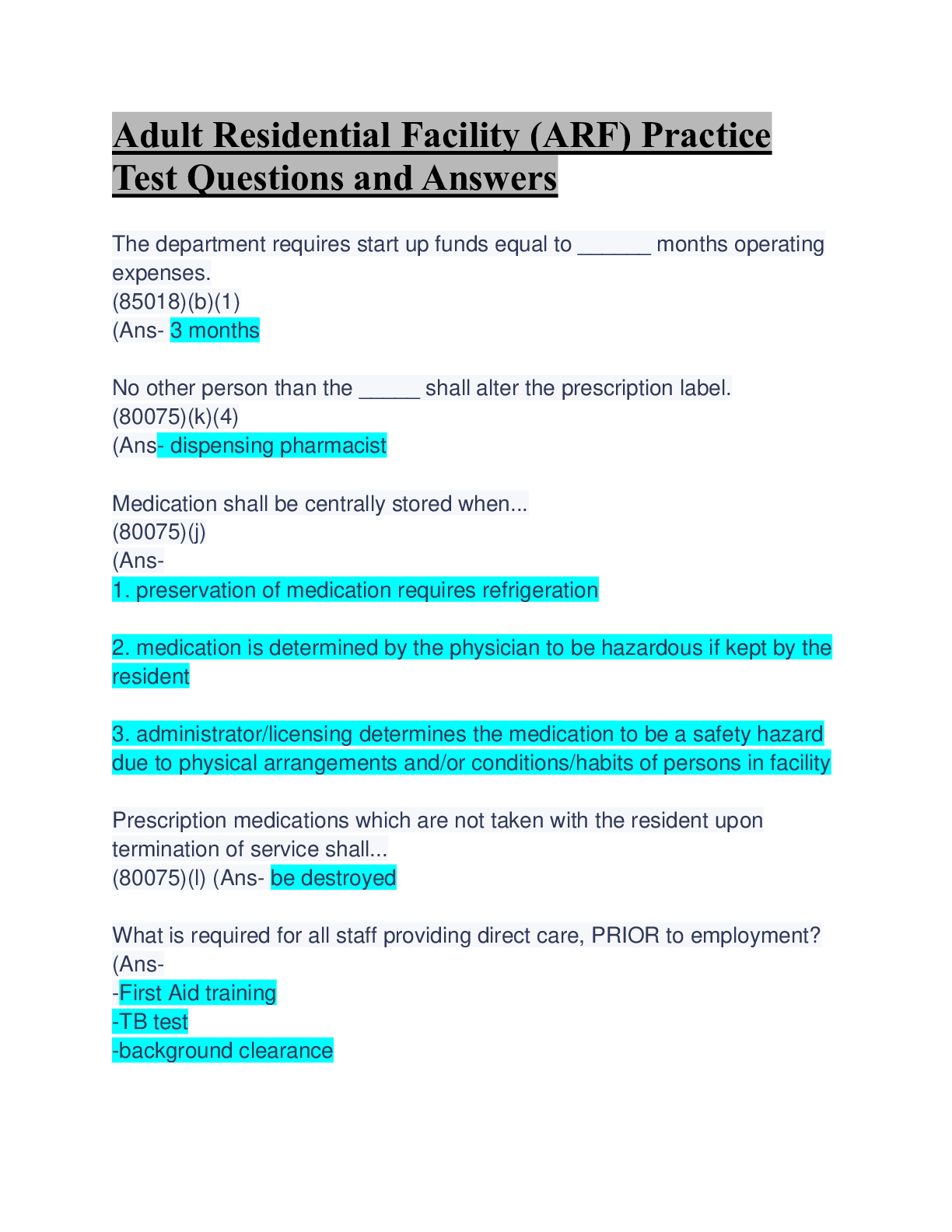
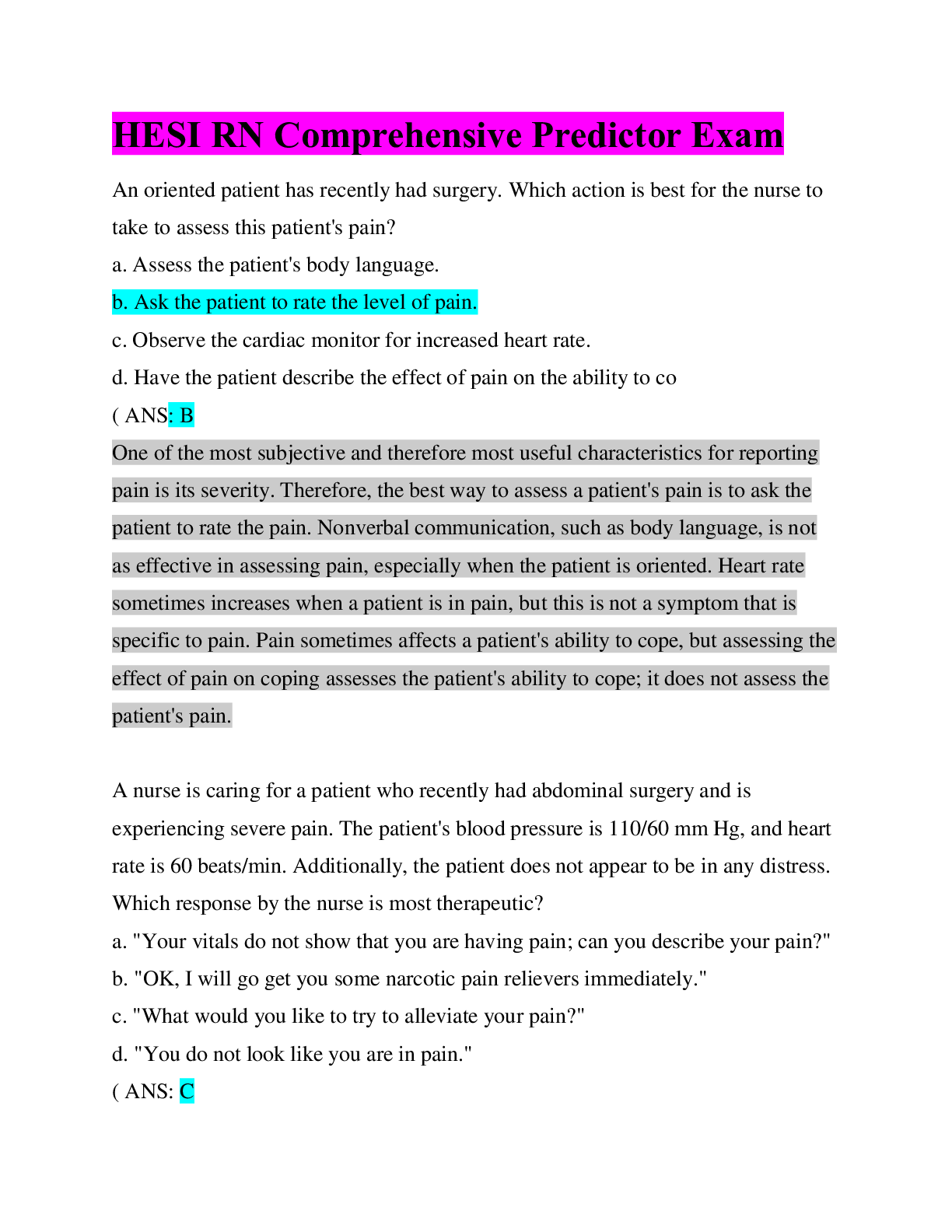
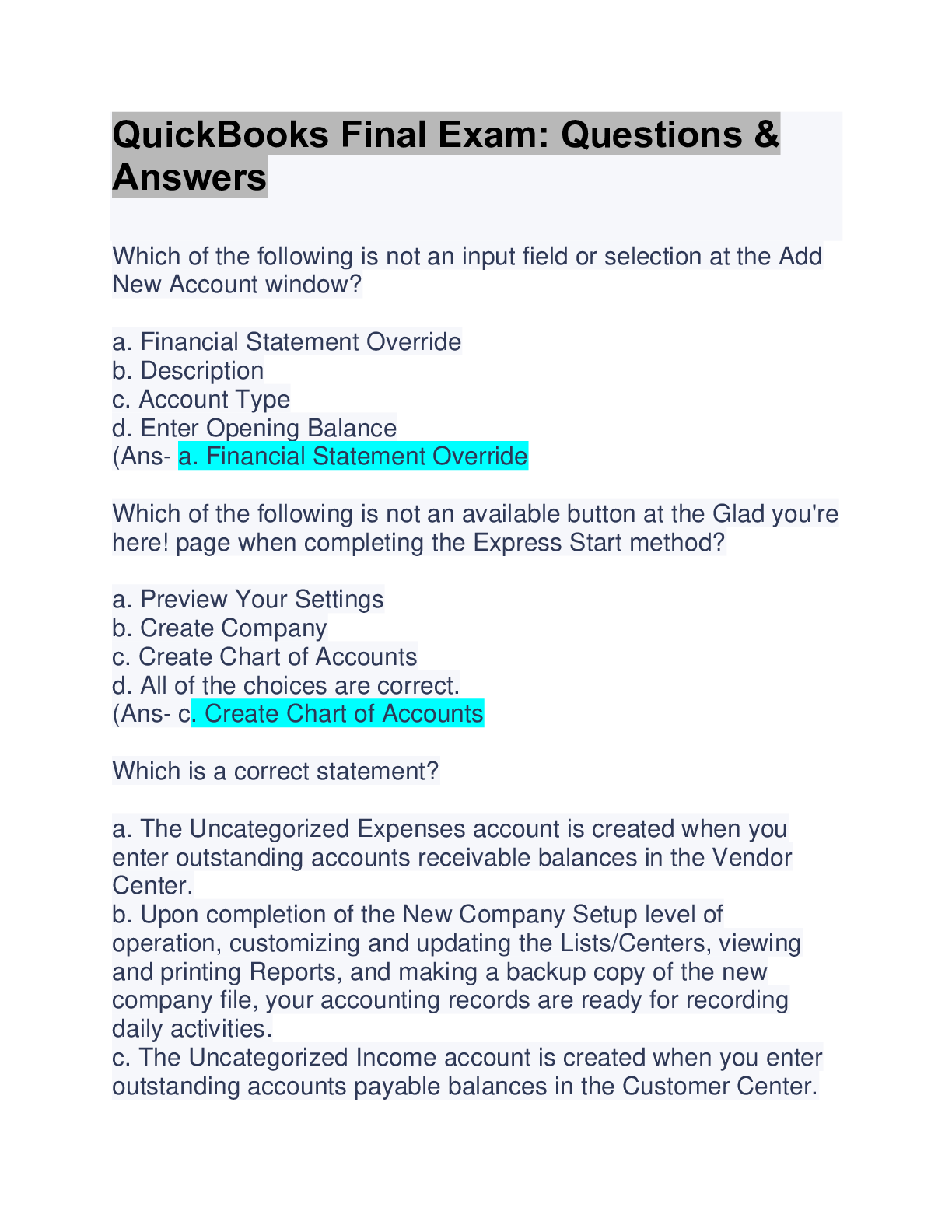
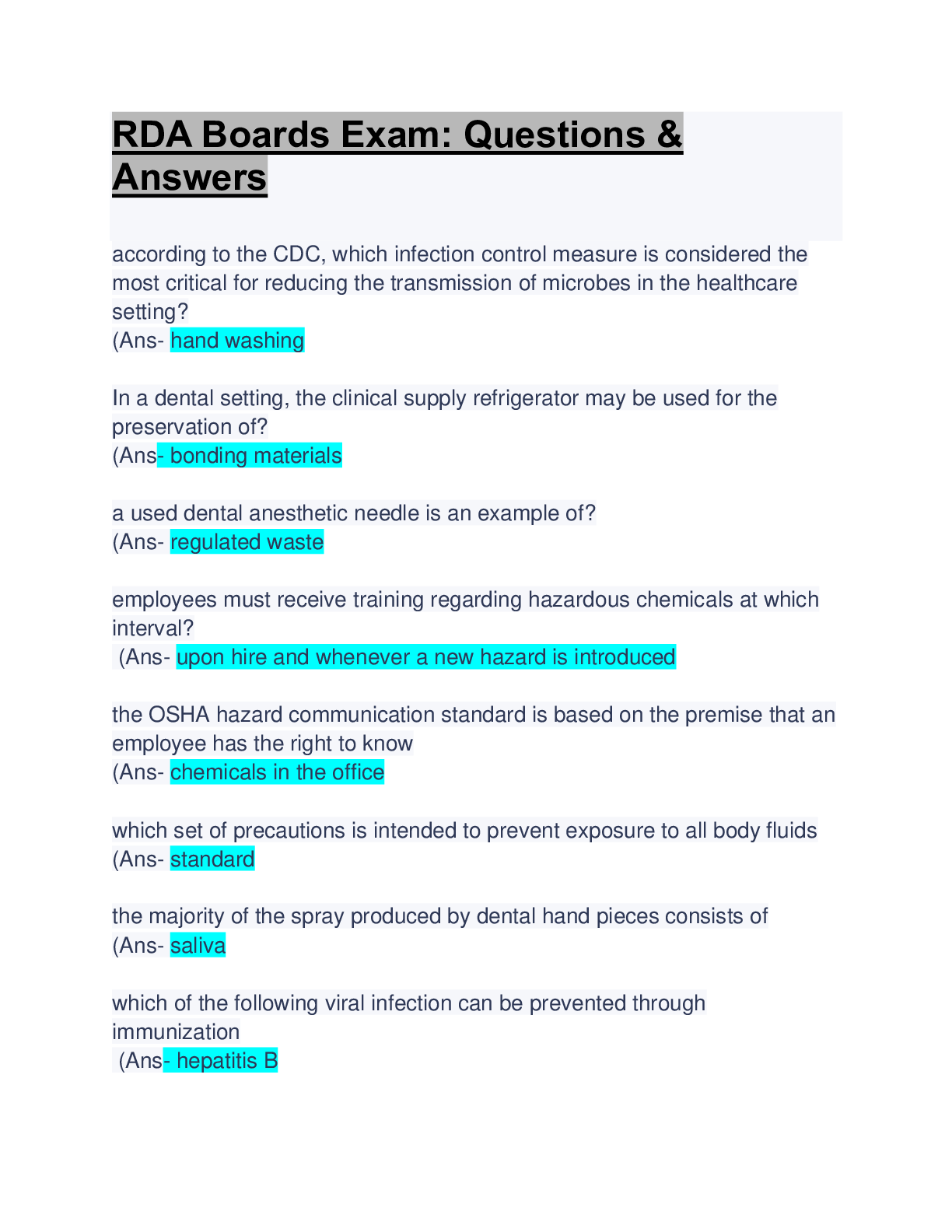
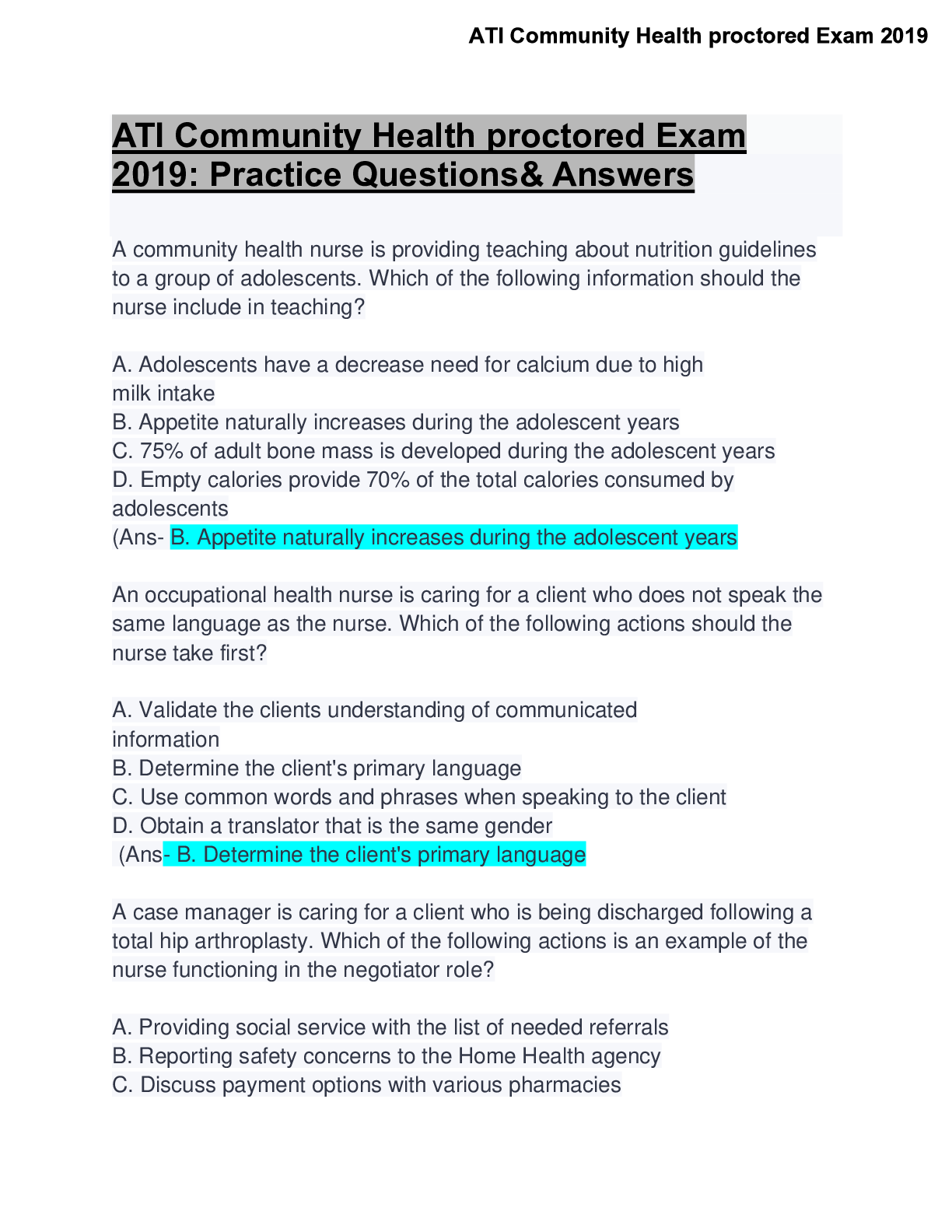
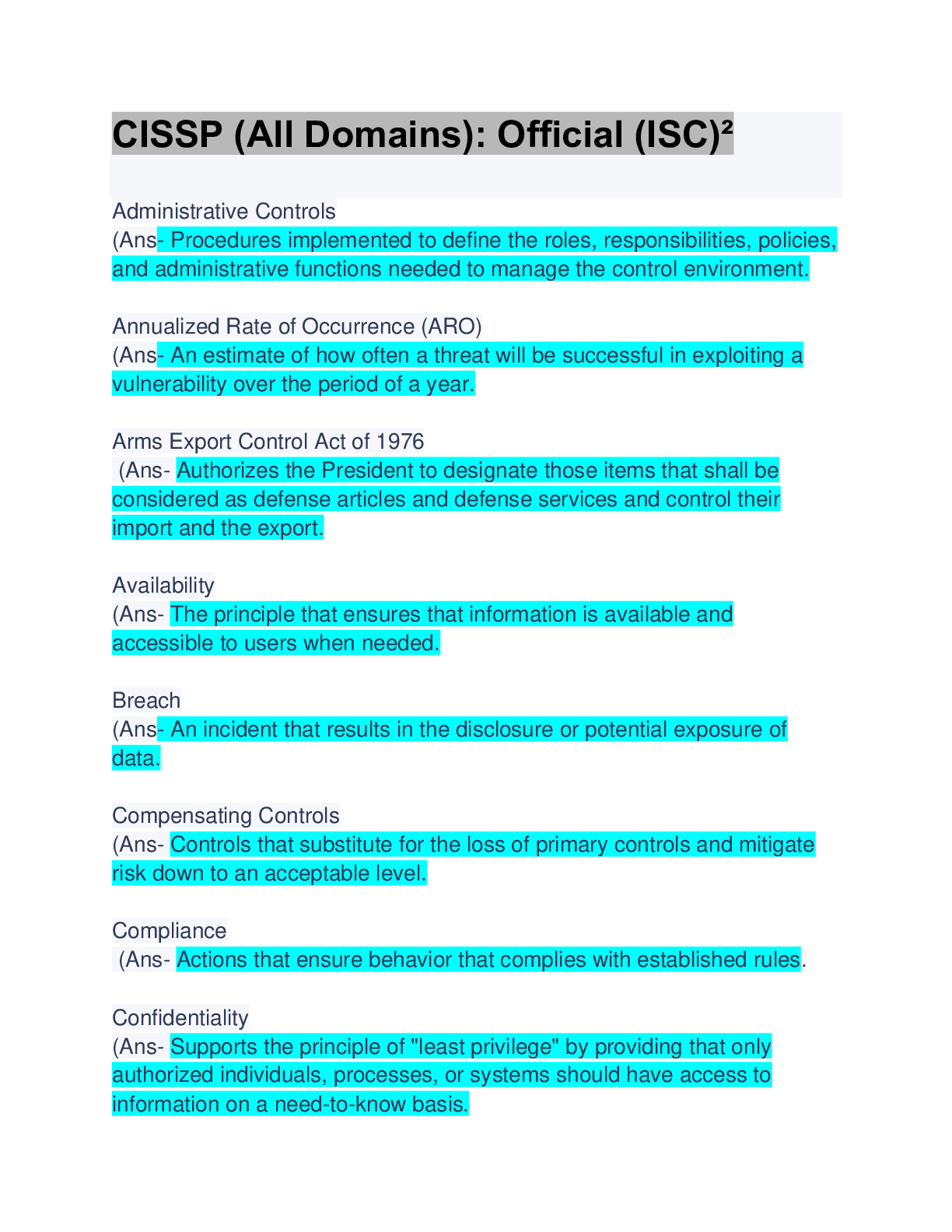
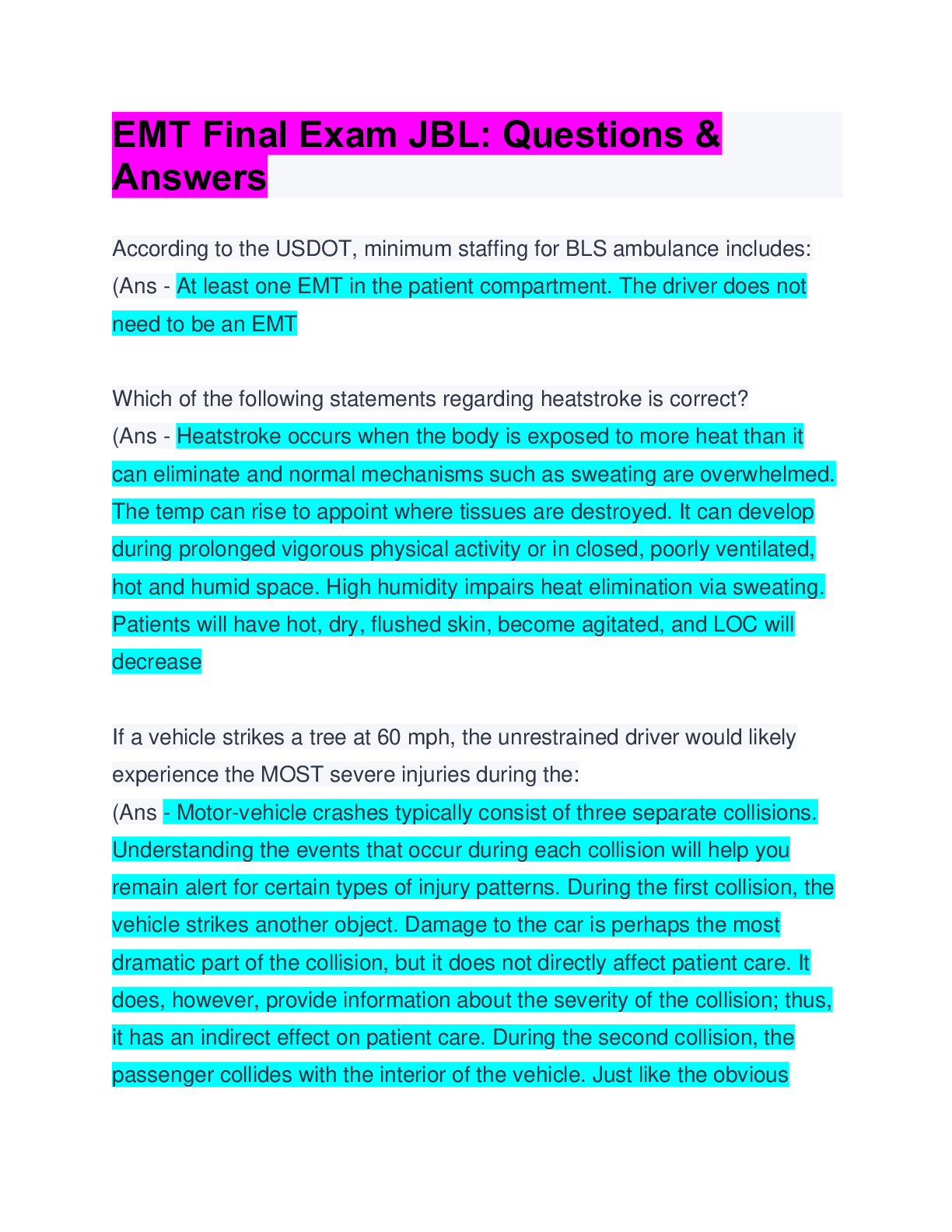
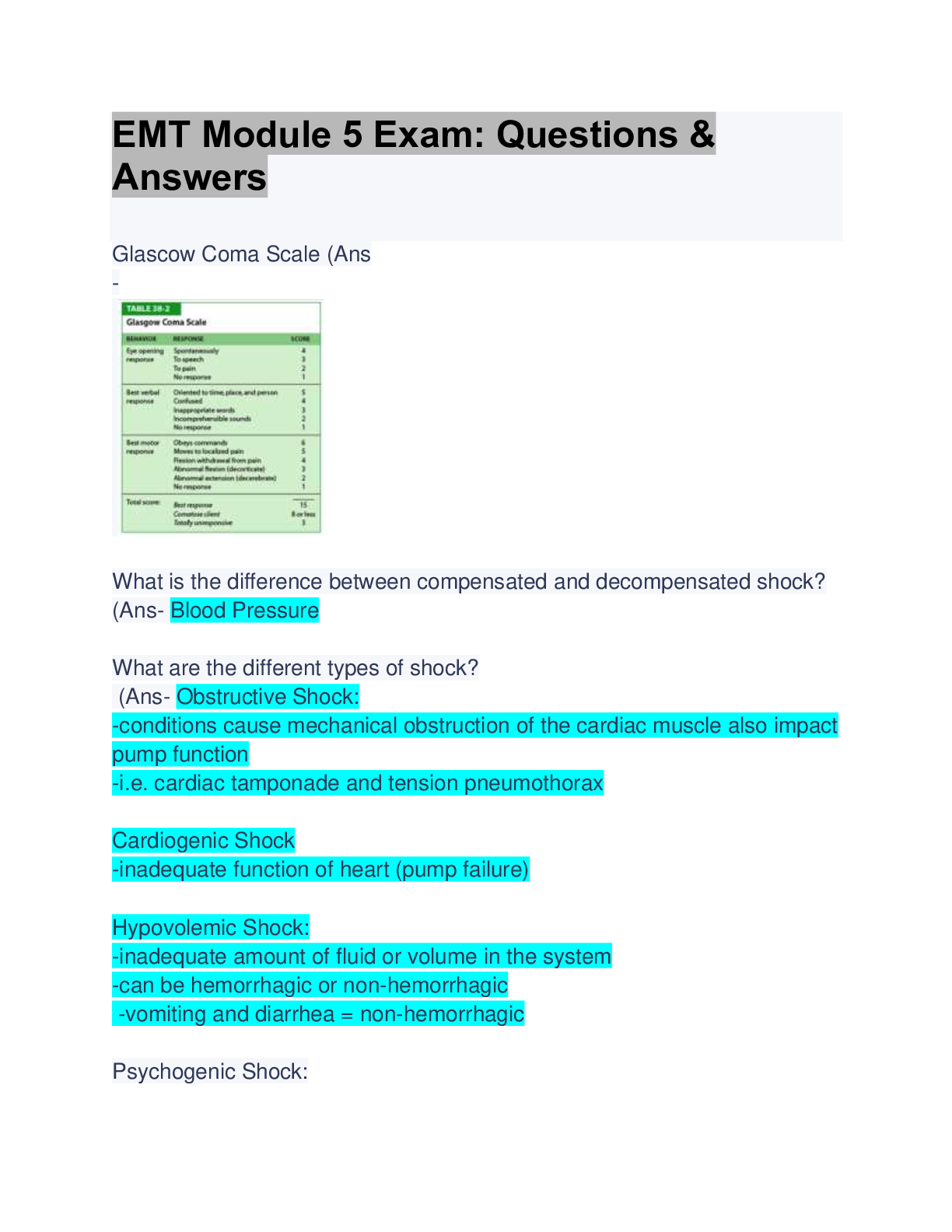
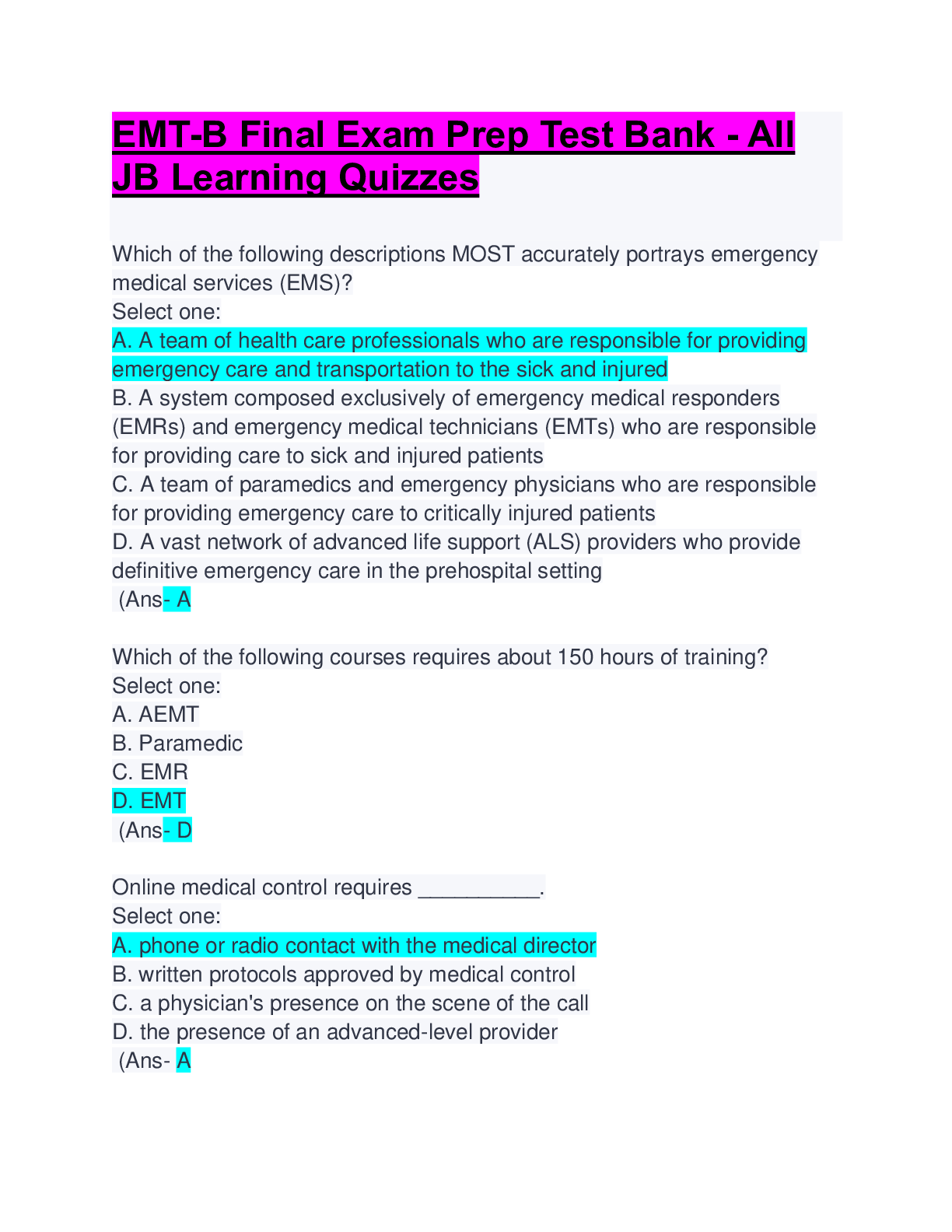
.png)
